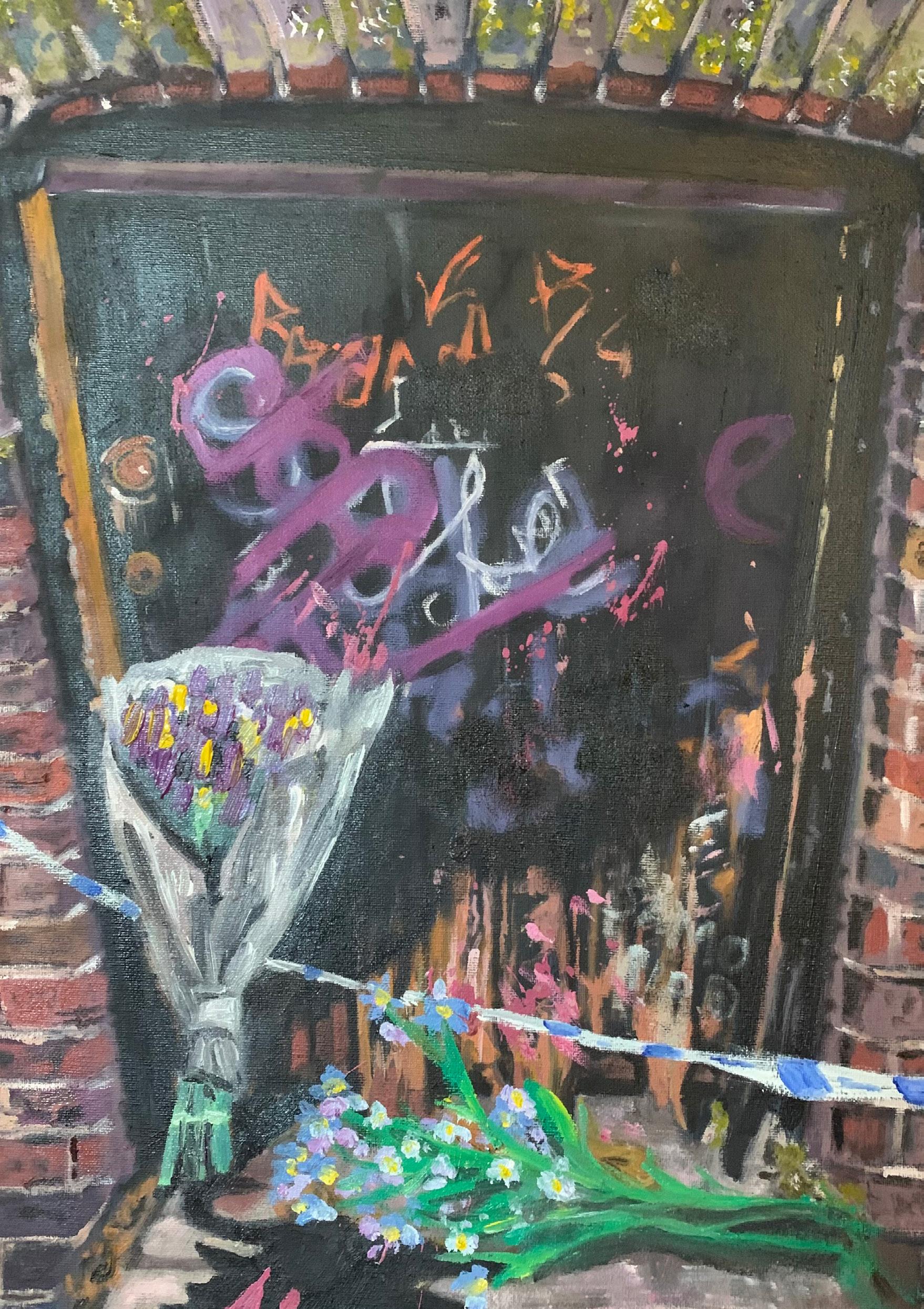
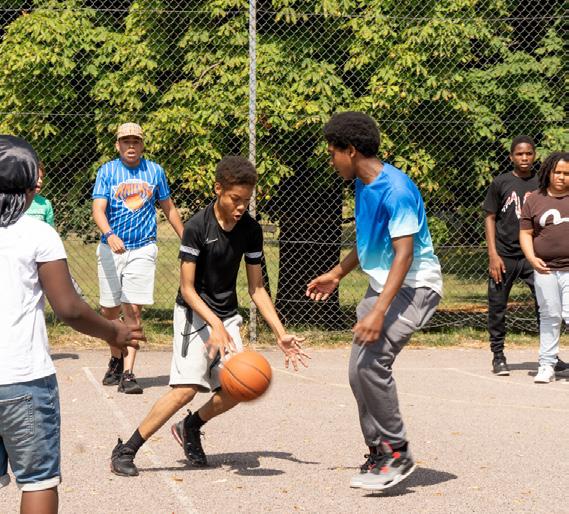











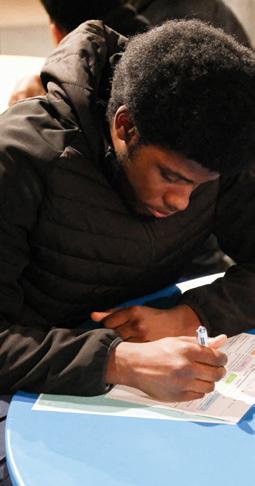
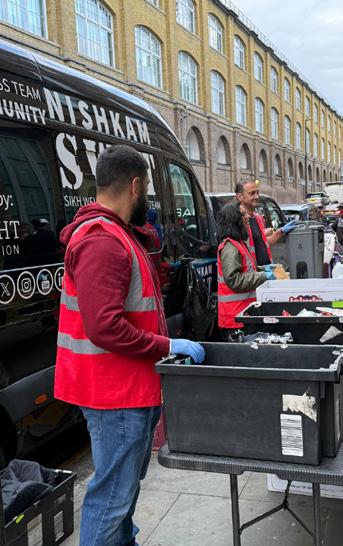

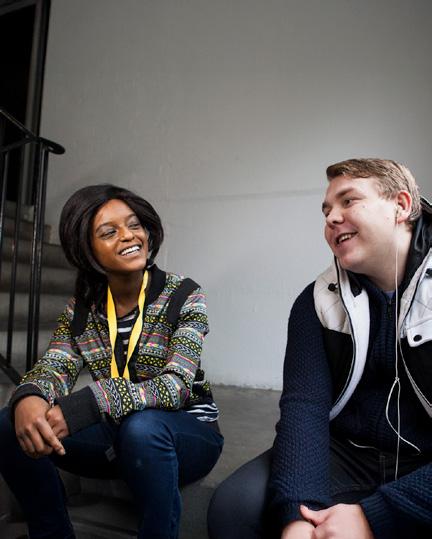


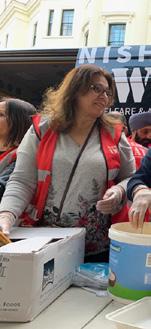



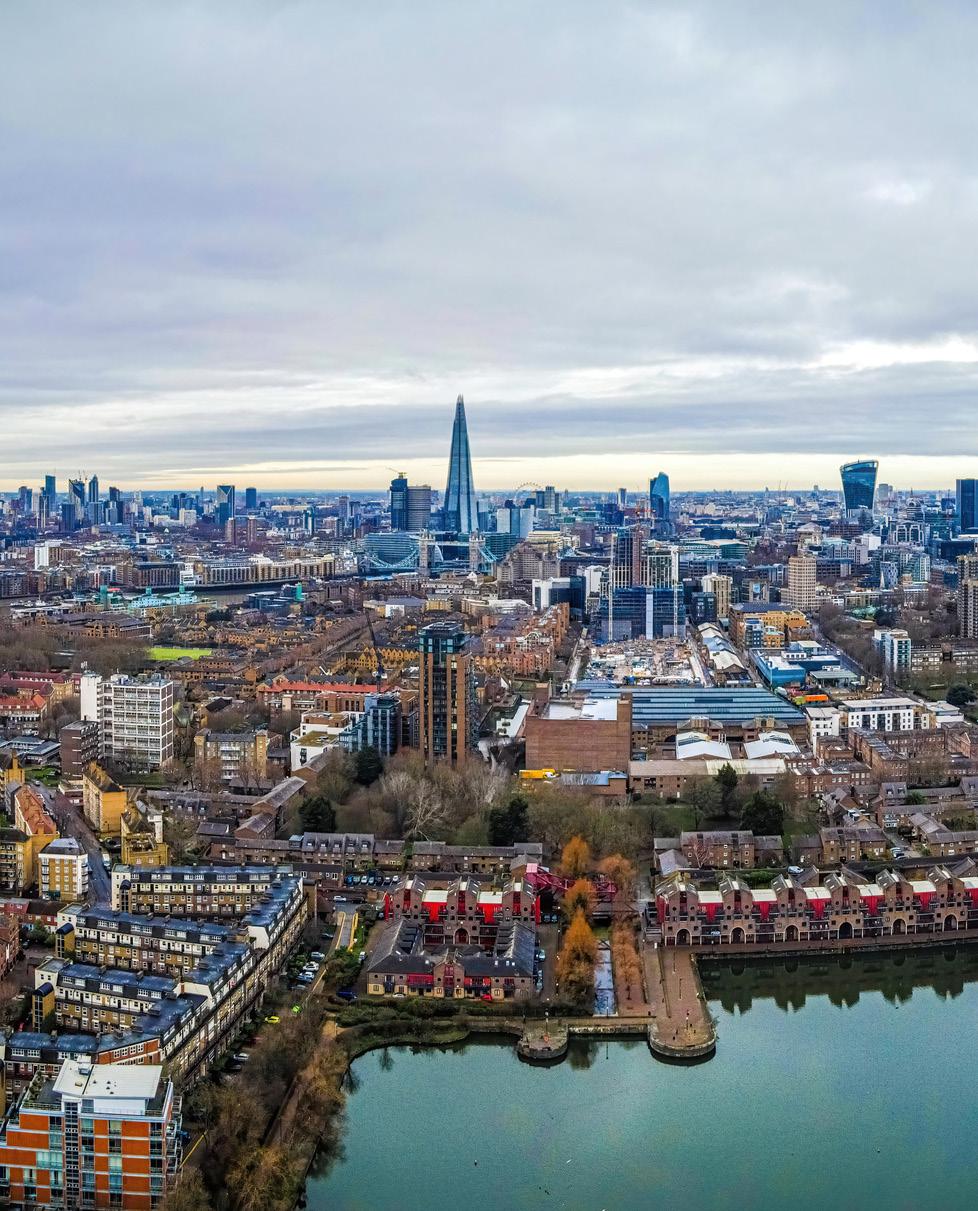
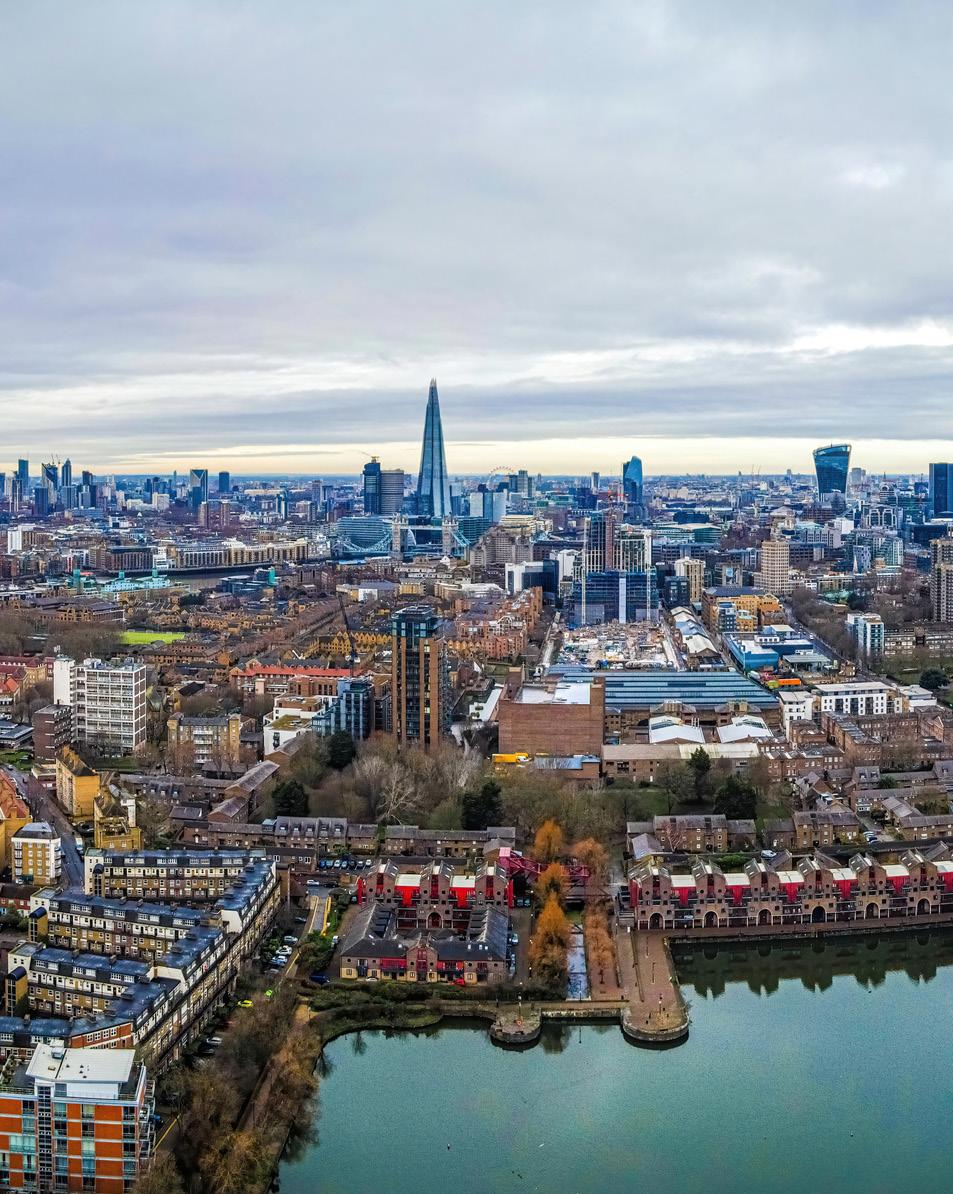














































By Bruce Houlder, Founder, Fighting Knife Crime London
Welcome to the 17th Edition of our magazine featuring new research as well as providing exposure to some the wider and more interesting developments in youth empowerment. As usual it contains a mix of the academic, pracademic, and lived experience. It also provides greater exposure to the day to day work being done across our communities to help our young people to live the best lives they can.
FKCL were delighted to receive an award this year as the Best NonProfit organisation (UK) for 2025 from Acquisition International. Whilst I readily acknowledge FCKL is a very small organisation, and whilst we only concentrate of providing information, research, updates and signposting for young people, rather than working with them directly, our value is now well recognised, and our growing reach has been heartening. Web Analytics show that in every year of operation since 2021, the number of people who use our resources has grown expontentially.
As mentioned in our last edition, FKCL has been instrumental in inspiring collaboration with Cleveland's Unit for the Reduction of Violence through its longstanding relationship with our partners at Sheffield Hallam University Workstreams are underway with the Cleveland police, in collaboration with the University’s Institute of Law and Justice. In addition, our next edition in January will feature the results of research by students and academics from the Institute into how governments can more effectively invest
to save, and inspire the potential power of social impact to reduce youth violence. FKCL will work closely with them on this exciting project.
September 2025 has brought some highly positive news showing that violent crime has reduced in all London boroughs, including some of those who in the past have shown a highly concerning number of injuries. This is now much more than a statistical blip, and all of us need to redouble our efforts to continue bringing the level of such injuries down. The Met Police, and the London Violence Reduction Unit are rightly among those organisations which must receive considerable credit for this. But much more here needs to be said. It is your money that funds and enables such efforts, and the value of that contribution has proved itself. But the statistics do not reveal the important and daily contribution to this work by those across London who are not paid for this work, do not receive public funds to support the work they do, and yet have made a huge, and often unrecognised contribution to reducing the level of violence and changing lives. It is often small donations from members of the public that enable their work, or social impact funding provided by the commitment of local businesses and bigger corporations. Those who make these enlightened contributions, both financial and as volunteers, often beyond the glare of publicity, are the unsung heroes which we also seek to recognise though the wide spectrum of work that FKCL seeks to make
better known. Some of these are partners in the work we do, but there are so many more. We use our reach to champion such efforts through our website, and by regularly sharing good news and stories of hope through our social media.
So what’s in this Edition?
Eliza Rebeiro , CEO of Lives Not Knives knows what she is talking about. She speaks about making, prevention mandatory, and consistent form of education in every school. Knife crime isn’t just about gangs or knives, but also about poverty, trauma, inequality, and children who don’t feel like they have a future. She proposes a solution.
The ever-excellent Professor Stan Gilmour deals with another aspect of that same theme when invited us to ask, instead of why certain young people carry knives, we do not examine how institutional arrangements systematically create biographical trajectories that make knife carrying appear rational or inevitable. It starts so much earlier than we might think, and it is avoidable.
Professor Eddie Kane , Director Centre for Health and Justice Institute of Mental Health at the University of Nottingham takes this theme further and makes some evidence based and highly practical suggestions. He draws on research that indicates that some existing methodology may not be the most effective way to target resources, and that the focus should be at a much more granular level that better targets interventions and investments into the areas where they will have most impact.
Rachael Box, founder of the well-established and VRU funded Local Village Network is a prime example of commitment and experience in action. The work they do at LVN is well recognised. Here she calls on policymakers, schools, and businesses to embed network building as a standard part of youth development. Just as literacy and numeracy are seen as essential, so too should access to networks and role models.
Junior Smart, Business Development Management and Founder of St Giles’ SOS Project, uses deep personal experience
Winner - Best Knife Crime Prevention Non-Profit Organisation 2025 - UK
We are delighted to receive this award from Acquisition International as the winner of the anti-knife crime non-profit organisation UK for 2025. The work that Fighting Knife Crime London does is in support of the real heroes. They are those organisations and individuals that work hardest every day of the week to empower young people, change their lives, and stamp out the scourge of youth violence. Our task is to provide the resources to help them do their work by spreading new research, all forms of collaborative resources, and providing the fullest encouragement to those working in the field and those that care for our young people.
Without the sacrifice of such people as you, nothing will change.

Bruce Houlder, Founder, Fighting Knife Crime London
and the experience gained by the work of the St Giles Trust to highlight systemic failings that create avoidable problems. Feeding into the narrative that so many of our authors write about, he asks us why when never run hospitals or schools on short-term contracts, we choose to do it with youth services. He tells us how we can build trust and shows us how real impact comes when that credibility is backed by training, professional standards, and longterm support.
Ignatius Terance-Smith is among much else, the Director of Community Engagement of Make It Stop Campaign. He is also the father of five children. He speaks about the work he does in Advocacy for families in crisis, and though mental health and trauma support. He mentions the practical help they give in navigating housing, benefits, and safety concerns. Their work also extends to Youth mentoring and diversion programmes and giving long-term support to families. Here, he uses this experience and the stories of those who have suffered, by highlighting his groundbreaking new film ‘Silent’. You can read about it and access the trailer directly through his article. Take a look.
Randeep Lall is a voice that really needs to be heard and the work he does to help young and old is beyond belief. I urge your support. He is the founder and motivator behind NishkamSwat, the organisation that serves nearly 5,000 hot meals to the homeless, hungry, and vulnerable across the UK a week. This month, he writes for our magazine. His understanding of the dangers faced by young people comes from speaking to them at the critical moment when they are most vulnerable. His insight into the problems they face is massive and his personal commitment to improving their lives is legendary. I am proud to count him as a friend.
Finally, returning to the theme of biographical trajectories addressed by Professor Stan Gilmour, we have a moving account of how someone with the severe disadvantage of mental affliction has managed to turn his own life around. Martin K. Sullivan is the subject of an article from the Lancashire and South Cumbria NHS . As well as being an exemplar for this NHS Foundation Trust, where he now works as a health therapist, he founded the MK Mind Rewind Project (see more on his advertisement page in this magazine), He now makes a huge contribution to the lives of others. DO read this.
So, do enjoy this edition. There is so much learn and much to think about here. Have you got something to say too, and the evidence to back it. If you do, why not consider submitting and article, and we can talk?
Bruce Houlder Founder of Fighting Knife Crime London (FKCL)
www.fightingknifecrime.london
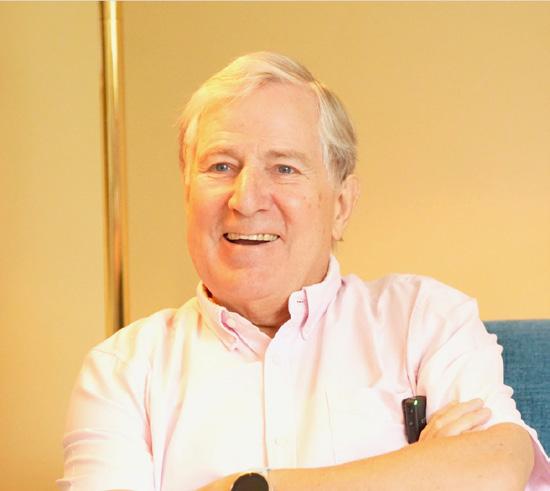
Bruce Houlder
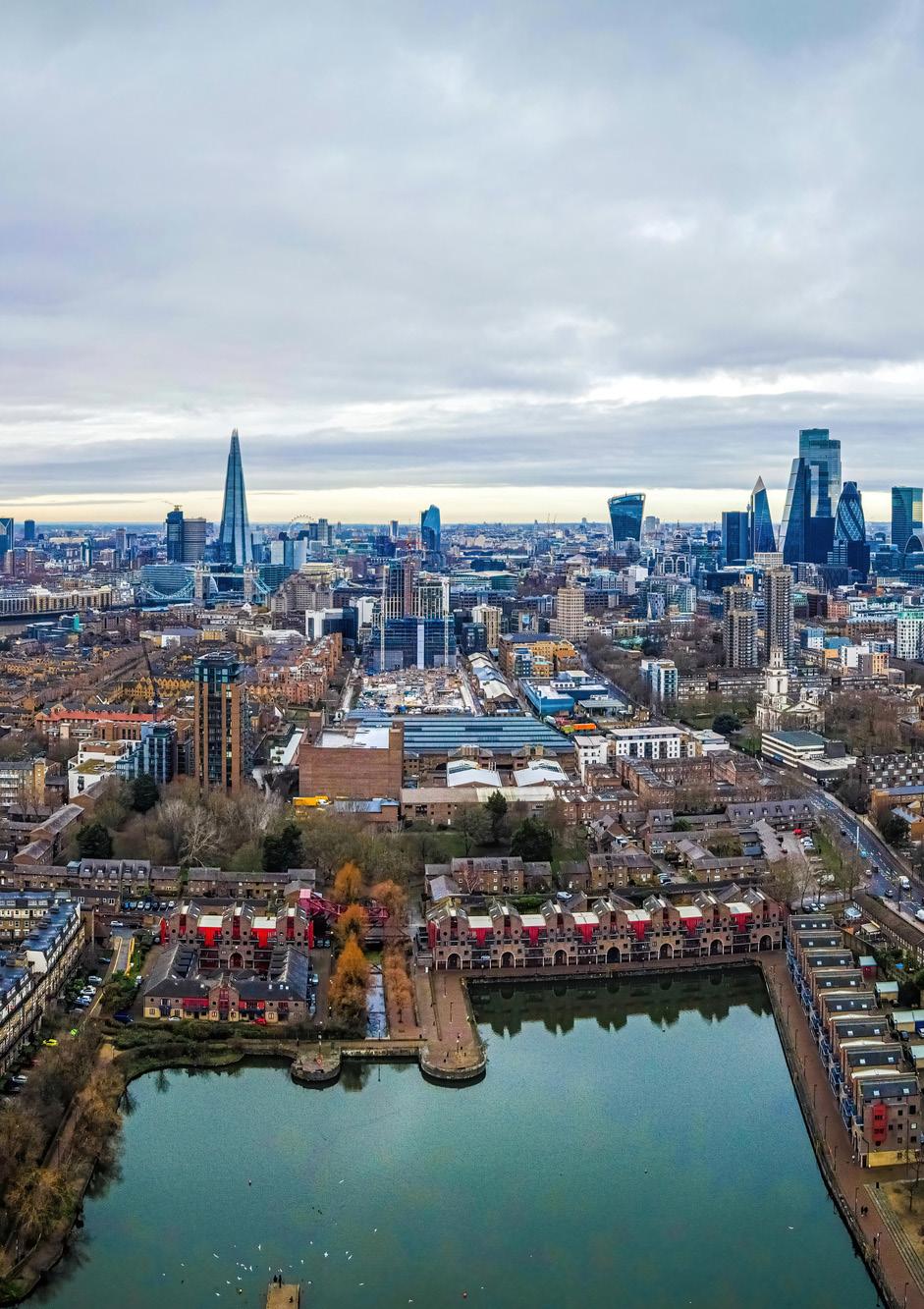
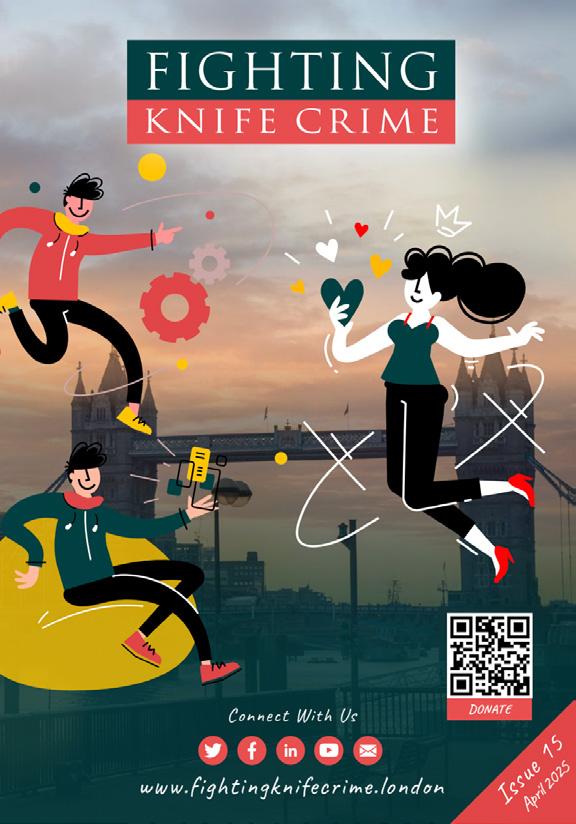



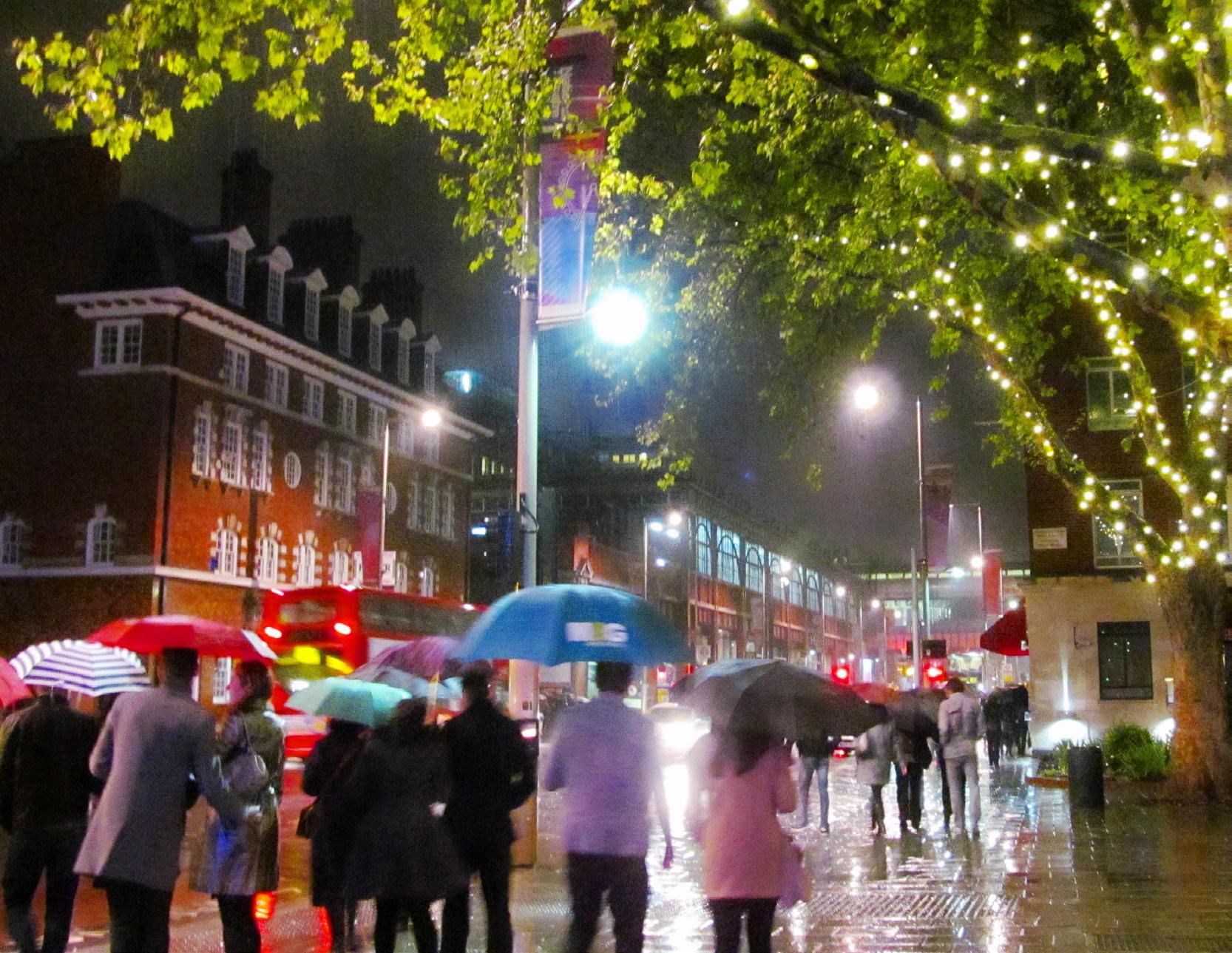
By Professor Eddie Kane, Director of the Centre for Health and Justice at the Institute of Mental Health, University of Nottingham
In 2023 we wrote an article for Fighting Knife Crime summarising our research into the incidence, drivers and locations of violent incidents including knife crime in London. In it we questioned whether the application of a public health approach to violence was currently being used to best effect in London. We supported the idea that a public health approach to violence reduction has a key role to play but we highlighted that it had to date been generally applied to whole cities or other Local Government areas. Our research and that of others, indicated
that this may not be the most effective way to target resources, and that the focus should be at a much more granular level that better targets interventions and investments into the areas where they will have most impact and crucially involves local people in making the decisions about where and how to do this. We were also clear that knowing and articulating which problem was being targeted and why, what was the rationale for a particular intervention designed to address that problem and what robust measures of success were proposed. We recommended that each
of these should be in place and were critical before investment was made.
In this article we look at what has changed since we wrote that article and our report ‘Neighbourhoods Affected by Violence’ for the London Violence Reduction Unit1. In looking at what has changed we consider two key areas: has knife crime reduced and have interventions and investment become more locally focused.
‘The number of knife or sharp instrument offences recorded by the police in London rose to approximately 16,344 in 2024/25, compared with 15,016 in the previous year 2. So, at least on the surface, it would appear that the answer is ‘no’.
There have been two recent reports and a House of Commons debate that have considered this question in detail.
1. Policy exchange July 20253
2. CREST Advisory June 20254
3. Hansard Volume 764: debated on Thursday 20 March 20255
These reports and the debate reveal views ranging from the pessimistic to the more hopeful with each offering differing solutions to secure change. In line with our 2022 report they all concluded that serious violence, including knife crime continues to be heavily geographically concentrated, mostly in areas of high deprivation but also in tourist and nighttime economy related areas. The Policy Exchange report highlighted areas in Westminster as the knife crime hot spots with robbery cited as the principal motivation. In contrast CREST’s report highlights the intrinsic difficulties of understanding the issues but does point to some positives: ‘Beyond the scale of serious violence, the vulnerability of people and communities to violence continues
to present a challenge. However, there have been some positive developments over the last five years, including the number of young people with access to positive opportunities and the consistently decreasing proportion of 16 and 17-yearolds not in education, employment or training (NEET)’ (p.2)
The House of Commons debate was wide ranging and acknowledged the range of initiatives that have been put in place. For example, the introduction of Ronan’s Law6 and the recommendations of the Clayman report.7 These aim to break the supply chain of weapons such as Ninja Swords. They are welcome initiatives but fall well short of what is needed if violence including knife crime is to be reduced overall and in particular for those communities and individuals most affected.
There has been some progress on this front and here we focus on one major initiative. Since April 2021, the London Violence Reduction Unit (LVRU) has invested heavily in the place based MyEnds programme. It aims to provide support, capacity, and funding for locally designed interventions in neighbourhoods affected by high and sustained levels of violence across London. The initial MyEnds schemes have now been decommissioned but as part of the overall programme they have been provided with some funding to help sustain them locally – the need to do this was a key finding of our report. A new tranche of nine schemes were funded from April 2024 with funding agreed to 2026 and the possibility of extension in subsequent years8. An independent evaluation of the MyEnds programme concluded that the programme was

involving the local Voluntary and Community Services networks (VCS) and that it had ‘brought benefits for delivery and problem solving, enabling sites to develop locally specific approaches and adapt this based on local knowledge about needs and promising approaches’ 9 (p.10). However, the report also concluded that the complexity of the programme was often a challenge. The broad range of required activities and the ambitious aims of MyEnds were difficult to balance within the timeframe. The report also highlights difficulties in determining and collecting monitoring data which is essential to measure progress and adapt delivery as the projects develop. This was compounded by schemes not typically having clearly articulated evidence bases or mechanisms of change, theories about how they aimed to reduce violence and critically how they would measure success. Addressing these fundamental issues and drawing on existing evidence of what works, are key development areas for sites and for the programme
as whole. We applaud LVRU’s initiative to address making investment and intervention more locally targeted and owned. However, this works only if there is a clear statement of exactly how a scheme is designed to reduce violence including knife crime, what mechanisms will be used to deliver and how will these be robustly and credibly be measured. From what we have reviewed to date this is not yet the case particularly at the granular level we recommended in 2022.
Understanding violence and interpreting trends is challenging. Rates of police-recorded crimes are in part driven by improvements in recording and reporting by victims, as well as changes in definition. However, it is inescapable that trends are running in contrast to the long-term downward trajectory of violence overall. Short-term fluctuations driven by the COVID-19 pandemic further complicate analysis. The range of initiatives, reports and parliamentary
debate are largely to be welcomed and without doubt some new initiatives such as MyEnds have the potential to make a difference to individuals and their communities. However, it is disappointing to note that many of the findings and recommendations in these most recent reports mirror those we found and made in 2022 and indeed those made by many others in the past. While it may be a standard resolution in House of Commons Debates ‘that this House has considered the matter of knife crime amongst children and young people’ was the conclusion of the recently held one; it seems sadly to encapsulate the realities behind the words and actions of many key agencies. This is particularly true when it comes to meaningful action that demonstrably and in an evidence based, robustly measured way demonstrates a positive impact. There is no doubt that some initiatives have worked to make a reality of greater and real inclusion of local people in identifying and addressing knife crime in their area but given the findings of successive reviews this has been with limited success. Repeated reports and debates call for significantly better data collection and consistency in and across key London agencies but to date this is not being delivered. Time and again the need for a clearly articulated rationale for in initiative and the related investment is called for i.e., why this initiative, why here, what problem is being tackled, how was it identified and how will anyone know if it has achieved anything worthwhile. With few notable exceptions this is not a pattern of intervention and investment that is currently being delivered.
[1] 20221 https://www.london.gov.uk/programmesstrategies/communities-and-social-justice/londonsviolence-reduction-unit-vru/our-research/vru-evidencehub/neighbourhoods-affected-violence
[2] https://www.statista.com/statistics/864736/knifecrime-in-london/
[3] https://policyexchange.org.uk/wp-content/uploads/ Your-Money-or-Your-Life.pdf
[4] https://www.crestadvisory.com/post/seriousviolence-in-london
[5] https://hansard.parliament.uk/ commons/2025-03-20/debates/E8E0359FBC0E-45A8-9399-8CAA6877D774/ KnifeCrimeChildrenAndYoungPeople.
[6] https://www.gov.uk/government/news/ronans-lawto-see-toughest-crackdown-yet-on-knife-sales-online
[7] https://www.gov.uk/government/publications/ independent-end-to-end-review-of-online-knife-sales/ independent-end-to-end-review-of-online-knife-salesaccessible - executive-summary.
[8] https://www.london.gov.uk/pcd-1519-my-ends-2evaluation-extension-reprofile-2526
[9] https://www.cordisbright.co.uk/admin/resources/myends-impact-evaluation-main-report-1.pdf
Eddie Kane
Director of the Centre for Health and Justice at the Institute of Mental Health, University of Nottingham
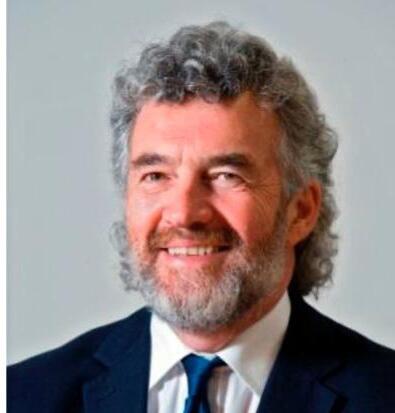
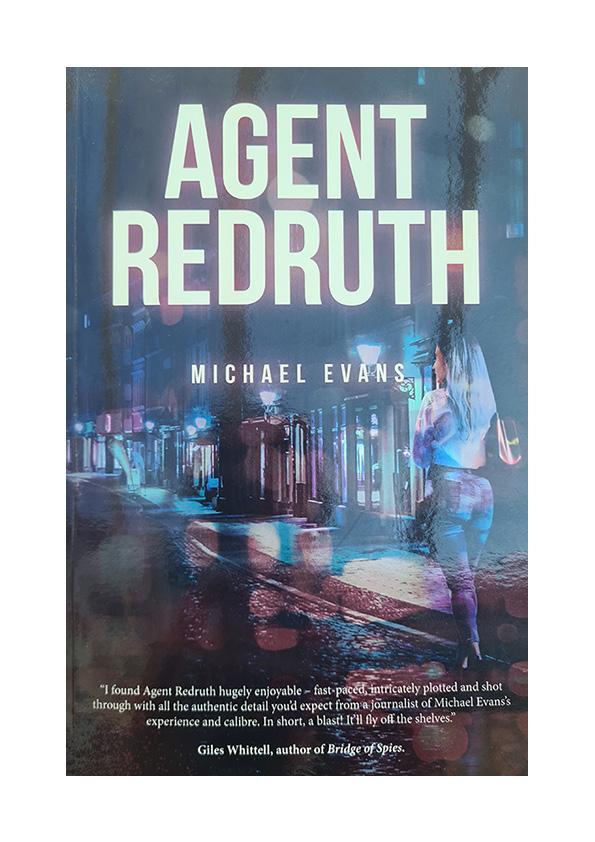

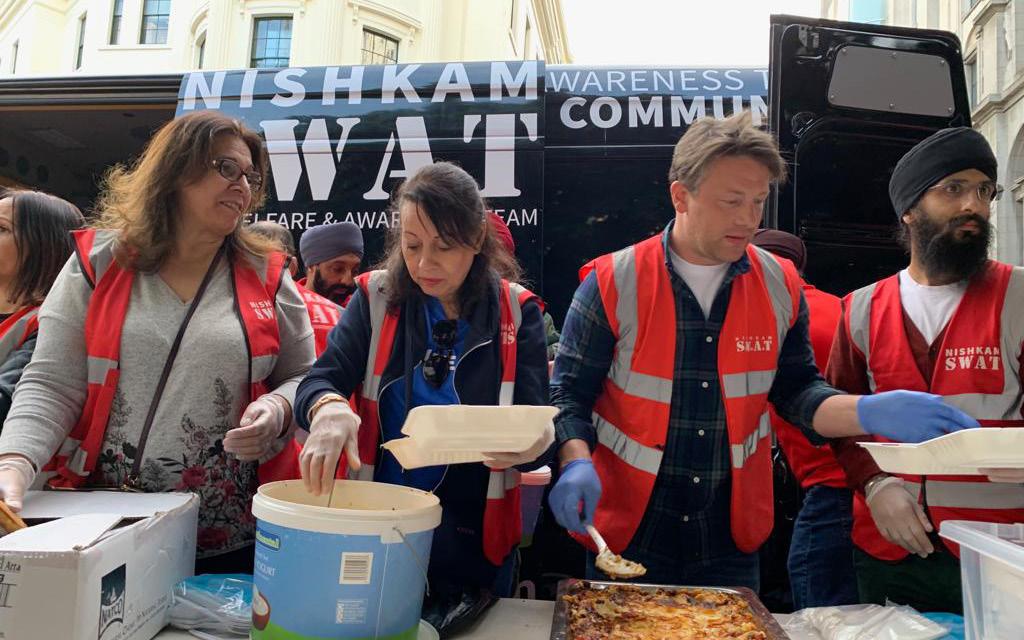
Do you really see the person in front of you? He has no home, he is still young, and has been failed by us all. Now open your heart, and look again!
By Randeep Lall DL, CEO, NishkamSWAT
Every week, NishkamSWAT (Sikh Welfare & Awareness Team) serves nearly 5,000 hot meals to the homeless, hungry, and vulnerable across the UK a week. We’ve been doing this for over 16 years, with the help of almost 500 dedicated volunteers, operating not just soup kitchens, but supporting food banks, healthcare initiatives, mental health interventions, and community rehabilitation. Our mission has always been simple: serve humanity with compassion, dignity, and love.
But behind every meal is a face. Behind every face is a story. And sadly, more often than not, it’s a story of failure, not of the individual, but of a system that should have protected them.
Over the years, we’ve come across heartbreaking cases. Many are young people, some as young as 17, who have slipped through every safety net. They’re not just struggling with homelessness; they’re battling trauma, mental health issues, addiction, violence, and in many cases, childhoods so chaotic and abusive that survival has been their only focus.
One of the biggest misconceptions we face daily is the belief that homelessness is a result of poor choices. That people “chose this life.” That they are “intentionally homeless.” That’s a damaging narrative.
In reality, many people who are classified as intentionally homeless are
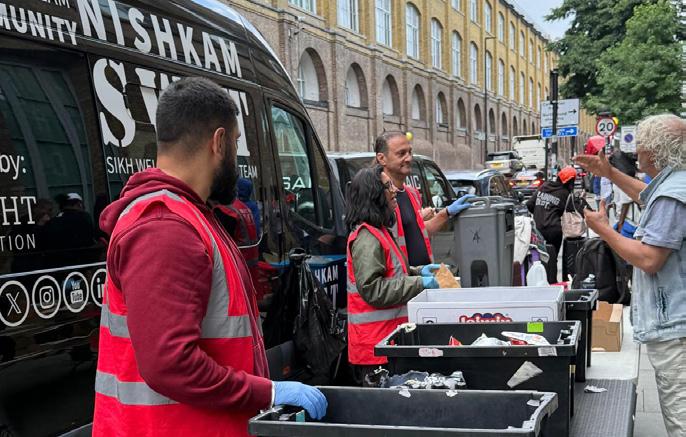
victims of untreated or undiagnosed mental health conditions. The system often fails to pick up early signs of trauma, abuse, neurodivergence, or psychosis. These young people don’t end up on the street because they want to be there. They end up there because somewhere along the way, no one saw what they were really going through.
Time and time again, we encounter individuals carrying unresolved trauma from early childhood victims of violent abuse, neglect, or abandonment. These wounds don’t always manifest visibly. They remain hidden, unspoken, untreated. By the time these individuals reach adulthood, these deep scars have affected their ability to sustain relationships, employment, and stability. And yet, when they ask for help, they’re turned away for lacking the “evidence” of need. If trauma is invisible, it too often goes unsupported.
There’s a saying: you become the company you keep. In the context of homelessness, this becomes painfully true. Imagine a young person who’s just lost their home. No support. No family. No safety net. Their only choice is to sleep rough. And who are they surrounded by? Others in crisis.
In this community, survival becomes the priority. That might mean drugs to numb the pain. Shoplifting to eat.
Violence as a defence mechanism. Slowly, inevitably, these behaviours become learned. They are passed on not by choice, but by circumstance.
I recall meeting a man who had recently become homeless. He was clean no addiction, no criminal record, just the stress of debt and job loss. I pulled him aside and said: Be careful. Don’t mix with the wrong people. He nodded. I could see he was scared but determined to hold on.
Three months later, I almost didn’t recognise him. He had started drinking to deal with the cold nights. Gambling had become his escape, and soon, his addiction. To fund it, he began shoplifting. It was a slippery slope, and it happened so quickly. He ended up as a criminal.
This story plays out far more than people realise. And unless we intervene at the right time, with the right support, it becomes nearly impossible for people to climb back out of that deep hole.
The streets are not safe, especially for young people. Every day, those without a secure place to sleep face the risk of robbery, assault, sexual violence, and exploitation. Gang recruitment is rife. Some are lured into county lines, others forced to become drug mules, and many are simply used and discarded.
The threat is two-fold. On one hand, young people on the streets are victims of violence. On the other hand, without support, some also become perpetrators. When survival is the only instinct, empathy can get lost. And that’s how cycles of crime are born not from evil, but from desperation.
What’s more, we often forget the psychological cost of simply being
homeless. The constant fear. The shame. The dehumanisation. One of the most common things people tell me is not about hunger or cold it’s about being ignored. Society walks past them. Treats them like ghosts. Over time, that invisibility becomes internalised. People stop believing they matter.
At NishkamSWAT, our goal is to intervene early to recognise trauma, to signpost support, to offer consistent kindness. But the truth is, we are a sticking plaster. Without systemic change, charities like ours can only do so much.
We need more trauma-informed services. We need better coordination between mental health professionals, housing services, schools, and youth workers. We need to stop criminalising homelessness and start understanding the root causes behind it. Labelling someone as “intentionally homeless” because they failed to declare a historic abuse or breakdown is not only unfair it’s dangerous.
We must also invest in preventative work. We must support those on the brink, people who are sofa-surfing, struggling with rent arrears, or being forced out of care. Homelessness is often the final stage of a long process of systemic neglect. We need to intervene at stage one, not stage five.
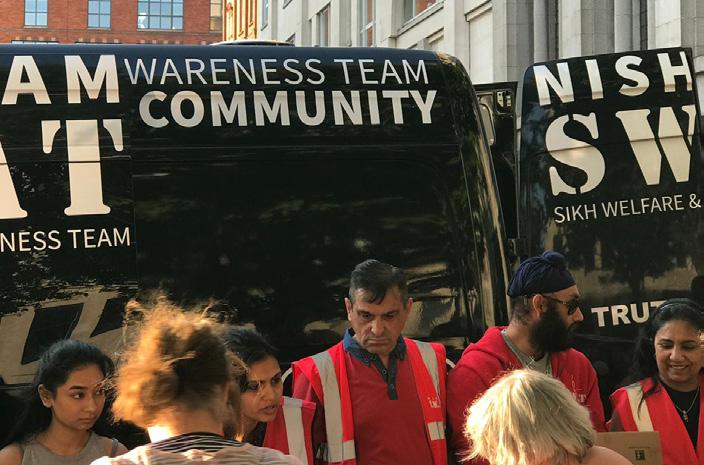
The work we do is built on one value: sewa (selfless service). No judgement. No red tape. Just a warm meal, a smile, and a safe space.
Over the years, we’ve witnessed miraculous transformations, people who went from begging on the streets to becoming volunteers and mentors themselves. But those stories only happen because someone took the time to see them. To really see them.
So if there’s one thing I ask, it’s this: see them. See beyond the addiction. Beyond the behaviour. Beyond the silence. Because behind every homeless young person is a child who needed help and didn’t get it.
If we, as a society, can remember that, maybe one day, we won’t need to serve 5,000 meals a week. Until then, we’ll keep showing up.
Because nobody especially not our young people should feel invisible in their own country.
Randeep Lall CEO, NishkamSwat
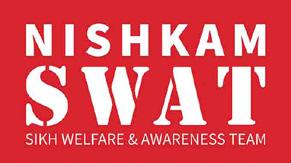
www.nishkamswat.com

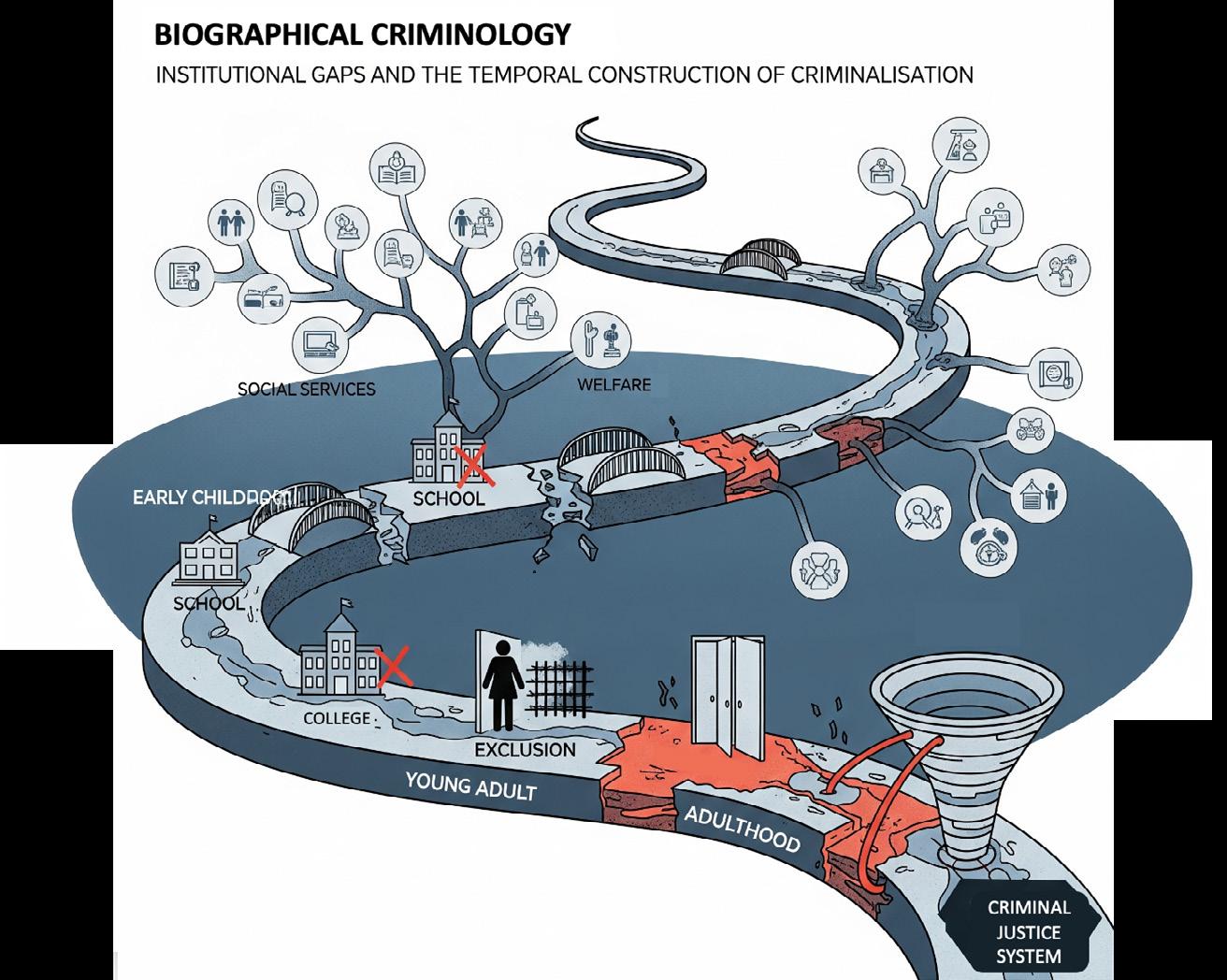
By Professor Stan Gilmour KPM FRSA
The UK's approach to knife crime has reached a critical juncture. Despite decades of policy interventions ranging from enforcement crackdowns to Violence Reduction Units, knife offences continue to claim young lives whilst generating headlines that demand political action. The Labour government's ambitious pledge to halve knife crime within a decade represents both recognition of the problem's severity and acknowledgement that previous approaches have proven insufficient. However, achieving this
goal may require a fundamental shift in how we understand criminalisation itself - one that moves beyond individual pathology to examine the institutional processes that systematically channel certain young people toward criminal justice contact.
Biographical criminology 1 offers precisely this alternative perspective, presenting compelling implications for knife crime policy that extend far beyond current intervention strategies. Rather than treating criminal justice contact as the starting point for analysis, this approach examines the institutional
failures that precede and produce such contact, revealing criminalisation as the predictable outcome of systematic gaps in education, healthcare, social services, and welfare provision across individual life courses.
Current knife crime policy discourse typically focuses on deterrence, enforcement, and individual rehabilitation - approaches that, whilst necessary, are insufficient because they assume criminalisation results from poor choices requiring correction or punishment. Biographical criminology suggests this framing fundamentally misunderstands the problem. Instead of asking why certain young people carry knives, we should examine how institutional arrangements systematically create biographical trajectories that make knife carrying appear rational or inevitable.
Consider the evidence on educational exclusion and knife crime. Research reveals that young people excluded from mainstream education face dramatically elevated risks of criminal conviction, with each exclusion creating cascading disadvantages that persist across decades. Children with unrecognised neurodisabilities - particularly those with brain injuries affecting behaviour - are systematically excluded from education without appropriate support, creating what I term "biographical injury" that accumulates over time.
This temporal dimension is crucial. A young person excluded at age 14 doesn't simply return to education two years later as if nothing happened. Instead, exclusion creates fragmented educational experience, limited qualifications, restricted employment opportunities,
and social isolation from prosocial peer networks. These accumulated disadvantages interact with existing vulnerabilities - frequently including unrecognised learning difficulties, family instability, mental health problems, and experiences of trauma - to create biographical trajectories characterised by institutional rejection and limited legitimate opportunities.
Within such contexts, knife carrying may represent not individual pathology but rational adaptation to circumstances shaped by institutional failures. Young people experiencing repeated institutional rejection whilst facing threats in their neighbourhood environments may view knives as necessary protection when legitimate institutions have systematically failed to provide safety, support, or meaningful alternatives.
Biographical criminology insights suggest current early intervention approaches, whilst valuable, remain fundamentally inadequate because they focus on individual risk factors rather than institutional processes creating biographical vulnerabilities. This perspective points toward what might be termed "institutional prevention" - reforming the systems that systematically create trajectories toward criminalisation rather than simply managing their consequences.
In education, this would mean moving beyond behaviour management approaches toward systematic recognition and support for neurodisabilities that often manifest as behavioural difficulties. The framework highlights how children with brain injuries affecting behaviour are
routinely excluded from mainstream education without appropriate assessment or support, creating trajectories toward criminalisation that could be prevented through different institutional responses. This suggests policy priorities including mandatory neurological screening before educational exclusion, specialist support programmes for children with brain injuries, and recognition of traumatic brain injury as a specific category within Special Educational Needs frameworks.
Similarly, this approach reveals how gaps in mental health services create biographical vulnerabilities that may not manifest as criminal behaviour for years or decades. Children experiencing mental health difficulties who cannot access appropriate support often experience educational disruption, family stress, and social isolation that compound over time. By adolescence, their presentations have become too complex for single-issue services to address effectively, often resulting in criminalisation when other institutional interventions have been exhausted.

The UK's Violence Reduction Units represent one of the most promising developments in knife crime policy,
adopting public health approaches that recognise violence as resulting from complex social determinants rather than individual pathology. However, biographical criminology suggests VRUs could be enhanced by incorporating systematic attention to institutional processes creating biographical vulnerabilities.
Current VRU approaches excel at identifying risk factors and implementing targeted interventions, but they typically focus on individual change rather than institutional reform. This perspective suggests the need for systems change rather than optimisation - we need to change how systems operate with one another and for their clients. Systems need proper funding, but so does systems change itself, and so does investment in systems leadership.
This might involve VRUs conducting what could be called "institutional audits" examining how local education, health, and social care systems respond to young people with complex needs, identifying gaps that create biographical vulnerabilities, and advocating for systemic reforms rather than simply developing interventions to manage their consequences. Such approaches would emphasise preventing biographical injury rather than treating its symptoms. Crucially, this represents a fundamental shift from trying to optimise existing systems to transforming how institutions relate to each other and to the young people they serve.
Perhaps most fundamentally, biographical criminology challenges the assumption that criminalisation represents appropriate response to institutional failures. When young people carrying knives have extensive
histories of educational exclusion, mental health service rejection, family instability, and limited legitimate opportunities, criminalisation adds another layer of biographical injury rather than addressing underlying problems.
This suggests criminal justice responses should be systematically redesigned around biographical complexity rather than discrete offending behaviour. Rather than focusing on punishment or individual rehabilitation, responses might examine how institutional failures contributed to circumstances leading to knife carrying, with interventions designed to address systematic gaps rather than individual deficiencies.
The emphasis on "habilitation" rather than "rehabilitation" is particularly relevant here - building on Pat Carlen's insight that most criminalised individuals have never experienced functional social integration requiring restoration. Most young people involved in knife crime have never experienced the kinds of stable educational, family, and community support that protect against criminal involvement. Effective responses require providing foundational resources necessary for legitimate participation in society rather than attempting to restore individuals to previously functional states that may never have existed.
Implementing biographical criminology insights within current policy frameworks presents significant challenges. This approach requires long-term thinking focused on institutional reform rather than shortterm interventions demonstrating
rapid measurable outcomes. Current accountability mechanisms typically incentivise crisis-driven responses rather than sustained preventive work addressing complex biographical needs.
Furthermore, the emphasis on institutional interconnection suggests effective implementation requires coordination across multiple government departments and service providers - precisely the kind of "joinedup" working that has proven difficult to achieve in practice. Successfully translating these insights into policy may require fundamental reforms to how public services are organised, funded, and held accountable.

Biographical criminology offers profound implications for knife crime policy by revealing how institutional arrangements systematically create vulnerabilities that manifest as criminal behaviour years or decades later. Rather than responding to knife crime through enforcement and individual intervention, this approach suggests addressing the institutional processes that create biographical trajectories toward violence involvement.
This represents a fundamental shift from managing crime to preventing criminalisation - from asking why young people carry knives to examining how institutional failures make knife carrying appear rational within certain biographical contexts. Such approaches may prove essential for achieving Labour's ambitious goal of halving knife crime within a decade, requiring sustained commitment to institutional reform alongside continued investment in enforcement and intervention approaches. Ultimately, effective knife crime prevention requires confronting uncomfortable questions about how our institutions systematically fail certain young people whilst appearing to provide universal support.
The challenge now lies in translating these theoretical insights into practical policy reforms that can address the institutional roots of criminalisation rather than simply managing its consequences. This will require both political courage to challenge existing institutional arrangements and sustained commitment to long-term biographical outcomes over short-term administrative convenience.
Professor Stan Gilmour KPM
FRSA is a leading criminologist and the architect of biographical criminology, a theoretical framework that examines how institutional failures across individual life courses create systematic vulnerabilities to criminalisation. His work challenges traditional approaches that focus on discrete criminal events, instead
revealing how gaps in education, healthcare, social services, and welfare systems compound over biographical time to channel certain populations toward criminal justice contact. Professor Gilmour's research has particular significance for understanding the institutional pathways that lead to serious violence, including knife crime, with his framework demonstrating how seemingly legitimate administrative processes constitute forms of "biographical injury" that accumulate across decades. His emphasis on temporal accumulation, institutional interconnection, and biographical embedding provides analytical tools for understanding criminalisation as the predictable outcome of systematic institutional failures rather than individual pathology.
Drawing on life course theory, narrative criminology, and institutional analysis, Professor Gilmour's biographical criminology framework has profound implications for crime prevention policy, suggesting the need for "habilitation" rather than "rehabilitation" and institutional reform rather than individual management. His work builds upon critical criminological traditions whilst extending their analytical reach to examine specifically how institutional processes create cumulative harm across individual life stories.
Oxon Advisory (www.oxonadvisory.com) is a specialist consultancy that applies cutting-edge criminological research to real-world policy challenges. The firm works with government departments, local authorities, and criminal justice agencies to translate theoretical insights into practical interventions that address the root causes of crime and social harm. Oxon Advisory's approach emphasises evidence-based policy development, institutional reform, and long-term prevention strategies that move beyond traditional enforcement models to address the systematic conditions that create vulnerabilities to criminalisation.
Prof. Stan Gilmour KPM FRSA
Oxon Advisory

oxonadvisory.com
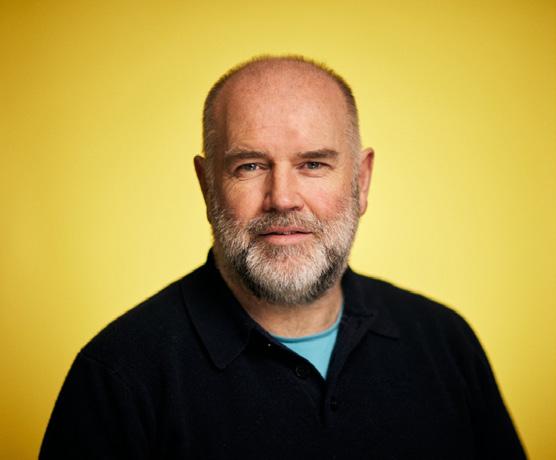
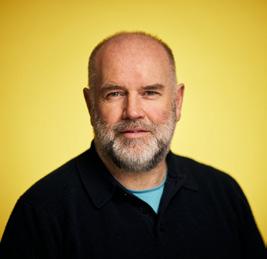
Rather than treating criminal justice contact as the starting point for inquiry, we must interrogate the institutional processes that precede and produce such contact, revealing criminalisation as the predictable outcome of systematic institutional failures.
Professor Stan Gilmour KPM FRSA, Criminologist, Oxon Advisory

By Ignatius Terance Smith (Max Da Cab Driver)
I am a father of six, a husband, a filmmaker, a community activist — but above all, I am a man who refuses to stay silent when my community is hurting.
When I began work on Silent , my new documentary, I knew it would not be an easy journey. I knew it would open wounds — not just for those I was filming, but for myself and for every person who would watch it. What I didn’t know was just how much it would change me.
The idea for Silent came from a moment of deep reflection. We see the headlines about knife crime far too often — a name, a face, a location, the words “tragedy” or “fatal stabbing” — and then the story moves on. But for the families, the friends, and the
communities left behind, it doesn’t move on.
I wanted to ask: What happens after the cameras leave? What happens when the phone that rang constantly in the days after the incident goes quiet? What happens when you’re left alone with your grief, your anger, your questions, and your “what ifs”?
Three Mothers. Three Stories. One Truth.
Silent follows the stories of three mothers whose lives have been forever altered by knife crime:
• Cheryl, whose son was murdered 12 years ago, and who has lived through over a decade of anniversaries, memories, and unanswered questions.
• Giftie, whose son committed a murder and is now serving time in a secure hospital. Her pain is doubled — mourning the loss of the life she hoped for her child, while grappling with the harm he caused.
• Lisa, whose son survived a stabbing but now lives with life-changing injuries, requiring 24-hour care.
Three mothers. Three very different journeys. But the same deep, unrelenting silence when the phone stops ringing.
Meeting these women was humbling. They were open, raw, and courageous in sharing their truth. They let me into their homes, their memories, and their most private pain. I did not take that lightly.
On 1st August 2025, Silent premiered at the Ritzy Cinema in Brixton as part of the iTAV Film Festival. It was a blacktie event, but it was not glamorous in the way most cinema premieres are. It was charged with emotion, community, and a deep sense of responsibility.
As the credits rolled that night, you could feel the stillness in the room. People stayed seated, not rushing to leave, as if they needed to breathe and process what they had just seen. Then came the questions — What can I do? How can I help? Where do we start?
That’s when I knew Silent wasn’t just a film — it was a tool for change.
Silent sits within a much bigger mission. I am the one of the Directors of the Make It Stop Campaign, a community-led movement tackling knife crime through prevention, intervention, and aftercare.
We believe there is no “one solution” to this crisis. Instead, there are 100 small, powerful actions that together create a ripple effect. The campaign is about finding those actions, empowering people to take them, and ensuring no family is left to face this pain alone.
We have been running The Power Programme in schools, including Evelyn Grace Academy in Brixton — teaching young people life skills, from cooking to sports, building self-esteem, and showing them there are positive alternatives to the streets.
We also launched the Community Response Initiative, designed to respond quickly and compassionately after incidents of violence. This includes:
• Advocacy for families in crisis
• Mental health and trauma support
• Practical help navigating housing, benefits, and safety concerns
• Youth mentoring and diversion programmes
• A long-term support network so families are not forgotten once the headlines fade
Alongside the Make It Stop Campaign, I run Involve 2 Evolve CIC , a social enterprise focused on creating positive change through community projects, youth development, and creative initiatives.
We’ve worked on everything from food banks to creative workshops, sports tournaments to market regeneration projects. At the heart of it all is the belief that when we involve people in the solution, we evolve as a community.
I don’t want Silent to be “just another film about knife crime.” I want it to be
a conversation starter, a mirror, and a motivator for real change.
My vision is to take it across London — and beyond — screening it in cinemas, schools, community centres, and faith spaces. Each screening will be followed by a workshop called “What Will You Do?” where audience members commit to one action, big or small, they will take to make a difference.
We’ll collect these commitments to create a “Wall of Action” — a powerful visual reminder that we can all play a role in preventing and responding to violence.
I want to challenge perceptions, shift mindsets, and give people practical, immediate ways to get involved.
I’m not an outsider to the struggles my community faces. I’ve seen the impact of violence first-hand. I’ve sat with grieving families. I’ve spoken to young people on the edge of making life-changing choices.
As a father of six, I feel a deep responsibility to do everything I can to make the world safer for my children — and for yours.
This work is not easy. It’s not glamorous. Sometimes it’s frustrating and exhausting. But it’s necessary. And when you see a young person choose a different path, or a parent feel less alone, you remember why you keep going.
If you’re reading this and thinking, How can I help? , the answer is simple: connect with us.
• Host a screening of Silent
• Bring the Make It Stop Campaign into your school or organisation.
• Join the Community Response Initiative.
• Offer your time, your skills, or your resources.
Every small action counts. Because when the phone stops ringing, that’s when the real work begins. And together, we can make sure no one is left in the silence.
Why not first watch the trailer here Further details are in the box below.
To discuss screenings, workshops, or partnerships, contact me directly:
e: involve2evolve@hotmail.com
t: 07506 869 137
You can also follow our journey on Instagram:
Ignatius Terance Smith (Max Da Cab Driver)

involve2evolvecic.co.uk
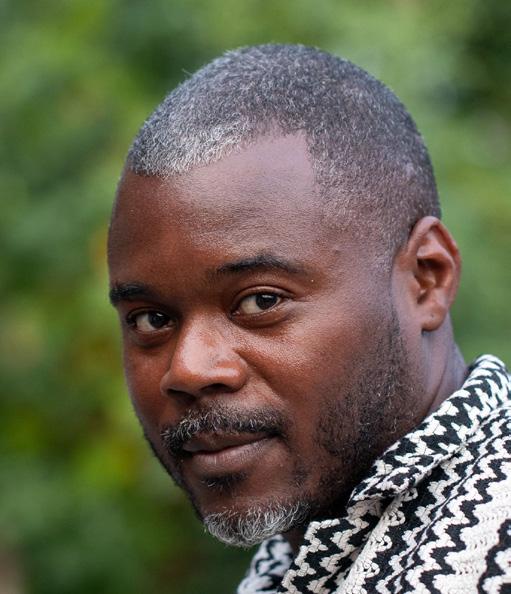
It is now Touring the UK. If you want to host a screening read on. Three mothers. Three stories. Silent is a powerful and deeply human documentary giving voice to the untold journeys of 3 mothers, What to expect
• 20-minute screening of Silent
• Live Q&A with Director Ignatius Terance Smith (Max Da Cab Driver)
• “What Will You Do?” Workshop – inviting the audience to commit to small or big actions that can help tackle knife crime in their own lives and communities
About the Director
Terance is a father of six, husband, entrepreneur, and community activist based in South London. Through his organisation Involve 2 Evolve CIC and the Make It Stop campaign, he works directly with schools, families, and communities to prevent youth violence, provide support after tragedies, and inspire collective action.
Host a Screening
We are bringing Silent to cinemas, community spaces, and schools across the UK. If you would like to host a screening and conversation in your area, contact us today.
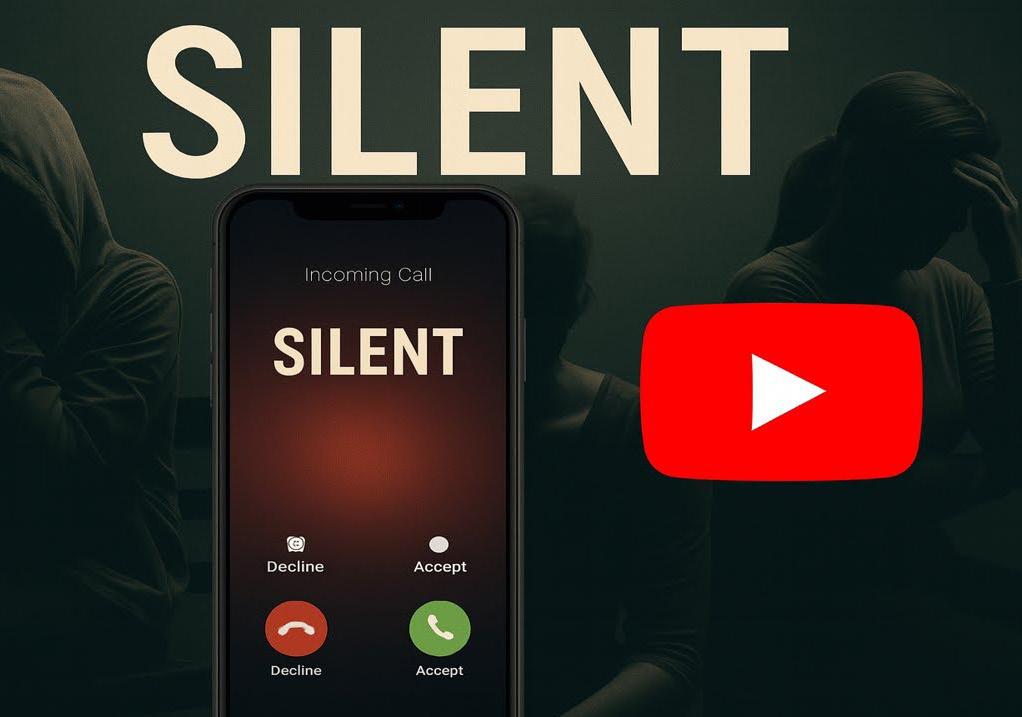






















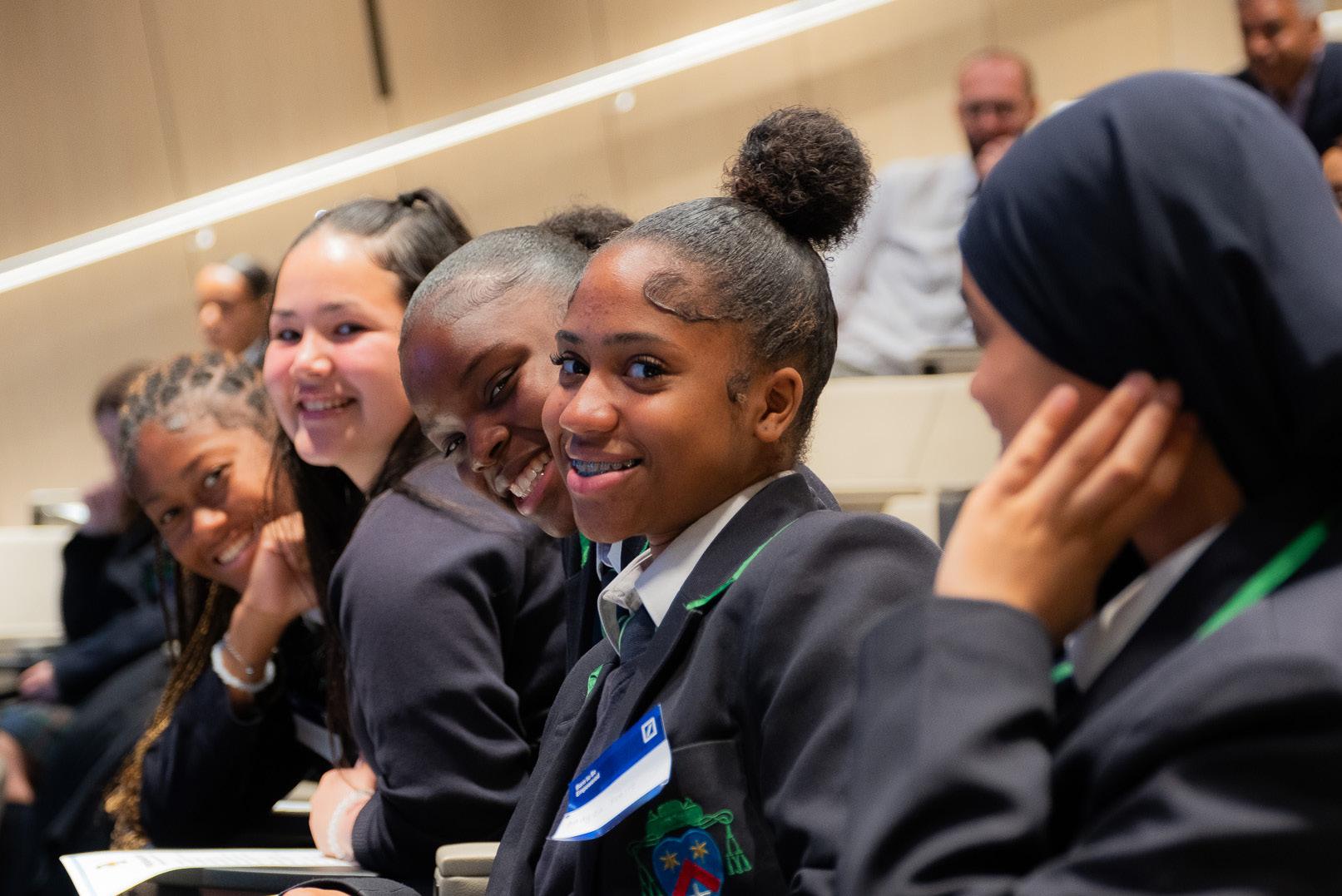
By Rachael Box, Founder, Local Village Network
Knife crime is one of the most pressing issues facing England today. Too often, we only hear about the problem at the point of tragedy — in the courtroom, in the hospital, or in the news. But if we are to reduce violence meaningfully and sustainably, we need to go further upstream. We must ask: why are young people picking up knives in the first place?


At Local Village Network (LVN), we believe the answer lies in tackling the root causes: fear, isolation, and lack of opportunity. For too many 14- to 18-year-olds, adolescence becomes a turning point where vulnerability can be manipulated into violence. Our mission is to intervene at that critical
stage — not with punishment, but with connection, networks, and hope.
The teenage years are often called the “second toddler stage.” Hormones surge, identities shift, and the support of parents and carers can weaken just when young people need it most. By the time a child reaches secondary school, parents are often stretched thin — juggling jobs, the cost of living, and younger siblings. This is also the age when young people are at greatest risk of drifting into negative peer groups. Without direction, self-esteem, or trusted adult role models, a knife can feel like a form of protection or a symbol of control.
The data is sobering:
• School exclusions are up 21% year on year (ONS, 2023) — and exclusion is one of the strongest predictors of involvement in serious youth violence.
• London knife crime continues to rise , with increases linked directly to austerity cuts to youth services and the cost-of-living crisis.
• National Insurance increases have forced schools to cut support staff , leaving fewer resources to run extracurricular and mentoring programmes.
The result? Too many young people leave school with feelings of uselessness, disconnected, and without the skills or networks they need to survive.
At LVN, we use the term “network poverty ” to describe what we see every day. This is the lack of access to positive adult networks that can inspire and guide young people. Poverty is isolating.
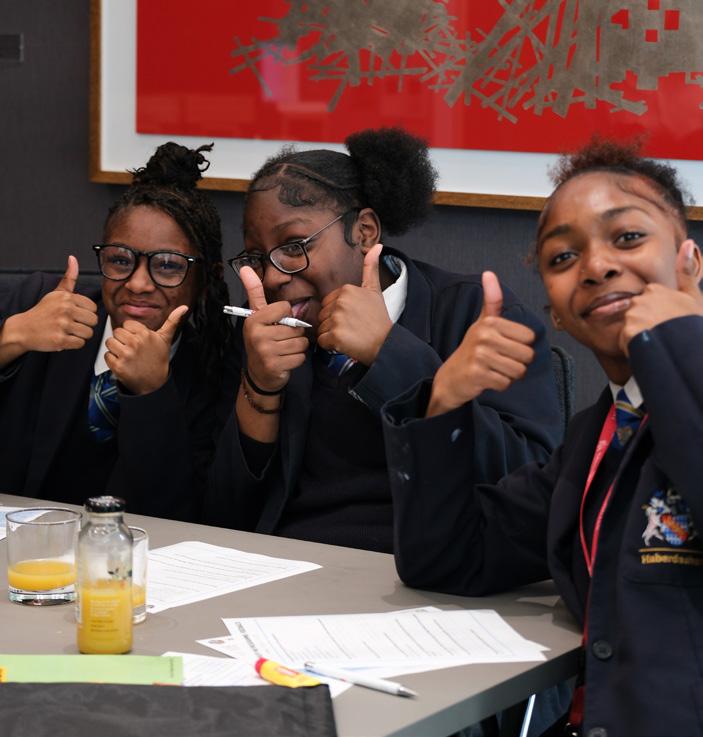
Families in deprived communities often lack the connections that middle-class peers take for granted — an uncle in construction, a neighbour in law, a family friend in finance. Without these role models, career pathways feel out of reach.
Discrimination deepens the problem. Many young people from Black, Asian, and minority ethnic backgrounds feel alienated in professional spaces. The thought is often: “ Why try? I’ll never be chosen. ” When aspiration feels impossible, risk and rebellion can feel like the only path.
LVN exists to change that.
Our Method: Ten Interactions Outside the Sphere of Influence
Our methodology is simple but powerful: every young person should meet at least ten positive adult role models outside their immediate circle.
It doesn’t take hours of intensive mentoring to make an impact. Sometimes it only takes one conversation with one person who sees your potential. But by ensuring that every young person meets ten, we significantly increase the chances of that spark being lit.
Through our Amplify me sessions, delivered in schools, (and soon youth hubs, and community spaces) young people have the structure to safely meet volunteers from all walks of life. Each volunteer offers insight into their journey, their industry, and the skills that matter in the world of work.
The effect is transformative. As one student told us: “If I can see it, I can be it.”
• 90% of students say their understanding of job and career options has increased.
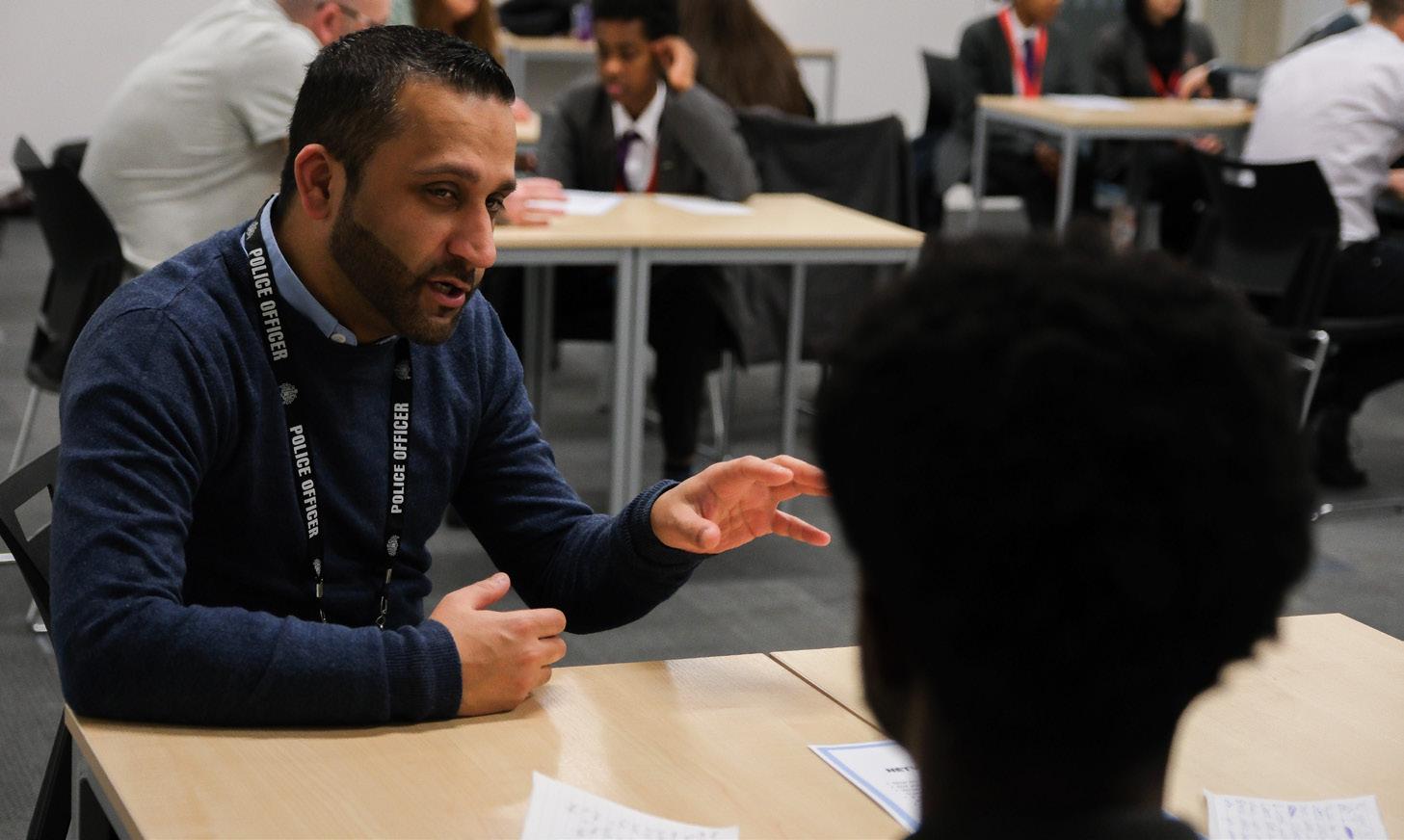
• 93% say they now understand the importance of surrounding themselves with positive influences.
• 83% say they feel more motivated to work hard for their future.
• 73% say they feel more hopeful about what lies ahead.
Since 2021, 3,108 young people have taken part in LVN Amplify me school programmes. In 2024/25 alone, 42 businesses volunteered, bringing their time, skills, and wisdom into classrooms where it is most needed. We work with diverse groups:
• 43% of our students are eligible for Pupil Premium.
• 65% don’t have English as their first language.
• 13% have Special Educational Needs and Disabilities.
These are the young people most likely to be excluded, most at risk of recruitment by gangs — but also the most eager to learn, connect, and grow when given the chance.
For judges, politicians, and policymakers, knife crime can appear as a crisis of law and order. But the reality is that it is also a crisis of belonging, confidence, and connection.
When a young person has somewhere to go, someone to talk to, and something to strive for, they are far less likely to be lured by groomers or drawn into violence. Saying no becomes easier when there is already a bigger yes to hold onto.
The evidence is clear: interventions like LVN’s cost far less than the social and financial burden of prison. More importantly, they transform lives before the point of crisis.
Knife crime is not inevitable. With the right support, networks, and inspiration, young people can and do choose a different path. But they cannot do it alone.
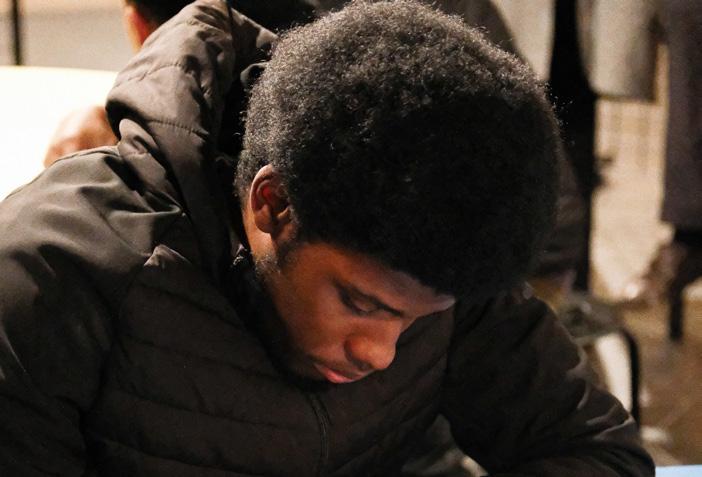
At LVN, we are calling on policymakers, schools, and businesses to embed network building as a standard part of youth development. Just as literacy and numeracy are seen as essential, so too should access to networks and role models. Together, we can end network poverty. Together, we can ensure that every young Londoner meets the people who can inspire them, guide them, and help them to build futures free from fear and violence.
Local Village Network Founders
Paul’s Story: A Life Cut Short, A Legacy That Lives On
LVN’s roots go back to Paul, who grew up in care and was sentenced to life in prison for knife crime in 1993. On his release, he colaunched the “LVN Stop the Knife” tour, using his lived experience to warn young people of the dangers of violence. Paul believed deeply that most young people “just lack support.” His message was simple: mindset change matters, and every young person deserves to be given a chance. Though Paul sadly passed away in 2019, his vision lives on in LVN’s work today.
Rachael’s Vision: Building a Local Village Network
Our founder, Rachael Box, saw first-hand the rise in youth violence in her own community. As a single mother of twins, she understood the pressures on families and the gaps in support. Determined to create change, she developed LVN’s model in collaboration with behavioural scientists and educators. Her vision is rooted in an old truth: it takes a village to raise a child. LVN brings that village together — parents, teachers, businesses, and volunteers — to show young people what is possible.
Networks help shape the future of London’s youth. Partner with LVN today.
contact@lvn.org.uk @localvillagenetwork
Founder, Local Village Network
www.lvn.org.uk

Rachael Box
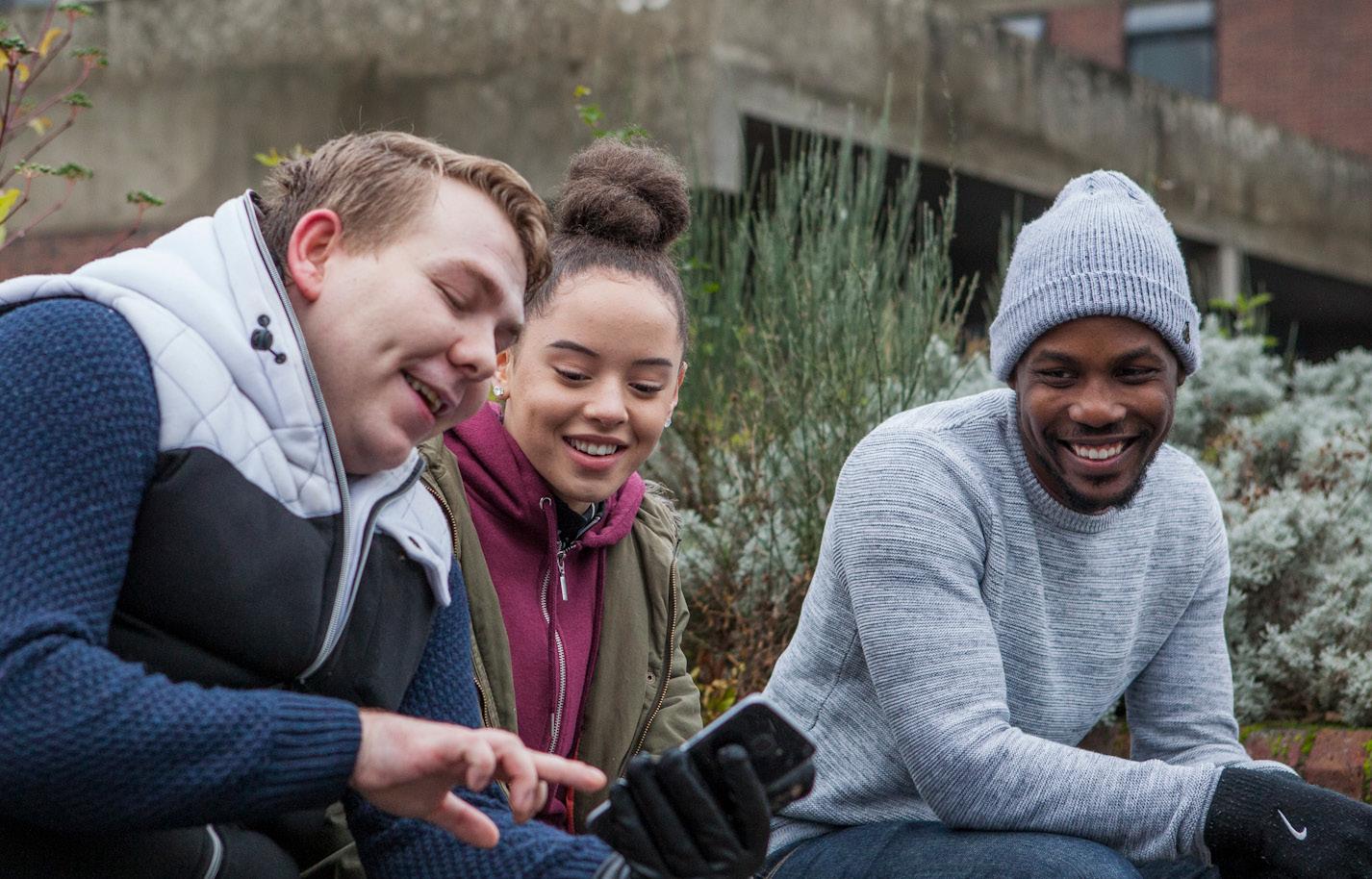
By Junior Smart, Business Development Management and Founder, St Giles’ SOS Project
Nineteen years ago, I walked out of prison determined that my life would mean something different. I did not want to waste the second chance I had been given. What began as a small project in South London, the St Giles SOS Project, grew into a national movement, showing that lived experience is not just valuable but essential in tackling the toughest social challenges.
Since then, I have worked with thousands of young people caught between fear, poverty, and exploitation. I have seen the realities that do not always make the headlines. Knife crime is one of the most visible and devastating symptoms, but it is never
the full story. Behind every blade is a young person navigating pressures and choices that most adults would struggle to manage.
When a young person picks up a knife, it is rarely out of aggression. More often, it is out of fear: fear of being attacked, fear of looking weak, fear of being left without protection when everyone else is carrying. In that moment, the knife feels like control. In reality, it makes them more vulnerable to injury, to arrest, and to exploitation.
Carrying a knife is a response to deeper issues. Poverty. Trauma. Lack of safety. A family stretched beyond capacity. A community stripped of opportunity. Social media showcasing
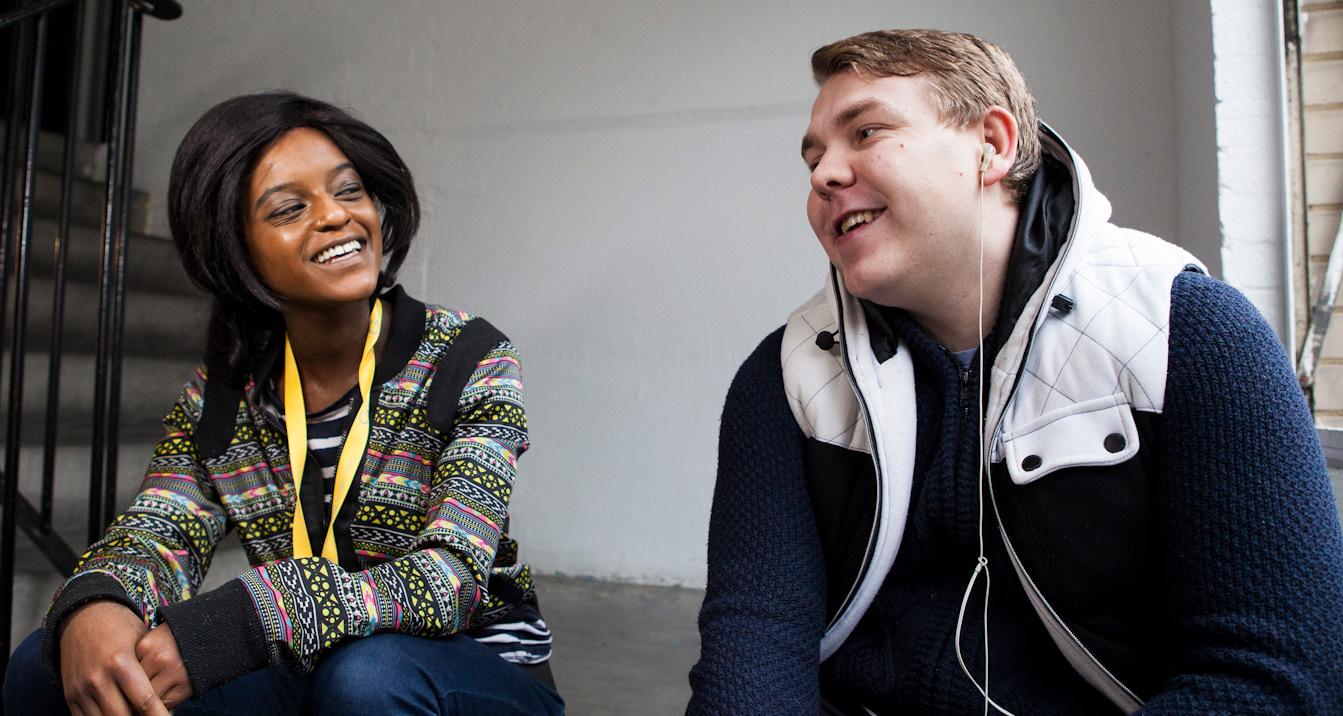
a life they cannot access. An older exploiter offering quick money, belonging, or protection. These are the conditions that breed knife crime, and they exist all year round.
Too often, society treats youth violence as a seasonal issue. When school holidays arrive, or when a spike hits the news, attention turns briefly to “what is happening with our young people.” But risk is not seasonal. It does not rise and fall with summer or winter. What changes is whether the systems that normally provide safety and stability; schools, youth services, families, communities; are strong enough to withstand pressure. Right now, too many of those systems are stretched to breaking point. Cost of living pressures, shrinking youth provision, and short-term funding models have created a situation where young people face complex risks with fewer supports than ever before. Knife crime is not created by these pressures, but it is exposed by them. We would
never run hospitals or schools on shortterm contracts, so why do we do it with youth services?
And the months ahead will be especially telling. Families on lower incomes are already stretched to their limits, facing rising costs for food, energy, and housing. For many, winter does not just mean darker nights but deeper uncertainty. These pressures do not just make life harder. They make exploitation easier, as young people look for ways to ease the burden at home or escape the stress around them.
Whenever tragedy strikes, we hear the familiar question: “Where were the parents?” The truth is often painful and complex. Many parents are working multiple jobs just to keep food on the table. Some are dealing with trauma of their own or supporting several children with no extended network to fall back on. The absence of parents is not always neglect. It is often exhaustion, poverty, or lack of support.
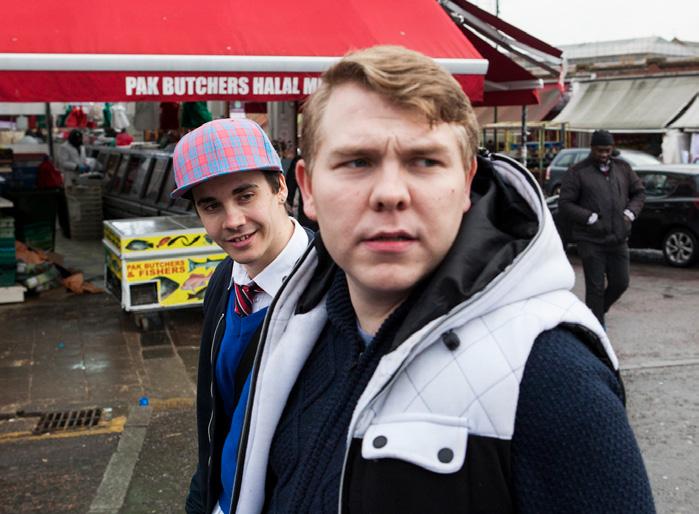
Exploiters know this. They step into the gap with promises of money, status, or belonging. What begins as a lift in a car, a chance to make some quick money, or a new pair of trainers can quickly turn into debt, control, and fear.
At St Giles, we have learned that young people do not change because someone tells them to. They change because someone earns their trust. That trust comes when they meet people who understand them, people with lived experience who can say, “I have been where you are, and there is another way.”
That is why lived experience is at the heart of what we do. It creates connection, breaks down fear, and shows young people that change is possible. But it is not enough to have credibility on the street. Real impact comes when that credibility is backed by training, professional standards, and long-term support.
We see young people as whole people, not problems. We meet immediate needs such as food, housing, and debt advice because stability is the foundation for any future. We then focus on opening up opportunities for
education, skills, and employment, so that young people can begin to imagine a different path. We also work with children and teenagers who are being drawn into violence and exploitation, helping them to feel safe, make better choices, and break free from those seeking to control them. Alongside this, we support people in the justice system, both in prison and on release, to rebuild their lives and prevent further harm.
These strands of work cannot be separated. Poverty, violence, and justice are deeply connected, and knife crime sits at the intersection. If we address one without the others, we miss the bigger picture.
There has been progress. Initiatives such as Violence Reduction Units and bodies such as MOPAC have shown what can be achieved when resourcing and expertise are brought together through a collaborative approach. As a result, knife crime has reduced in London and the West Midlands. This proves that when we invest properly in prevention and partnership, lives are saved.
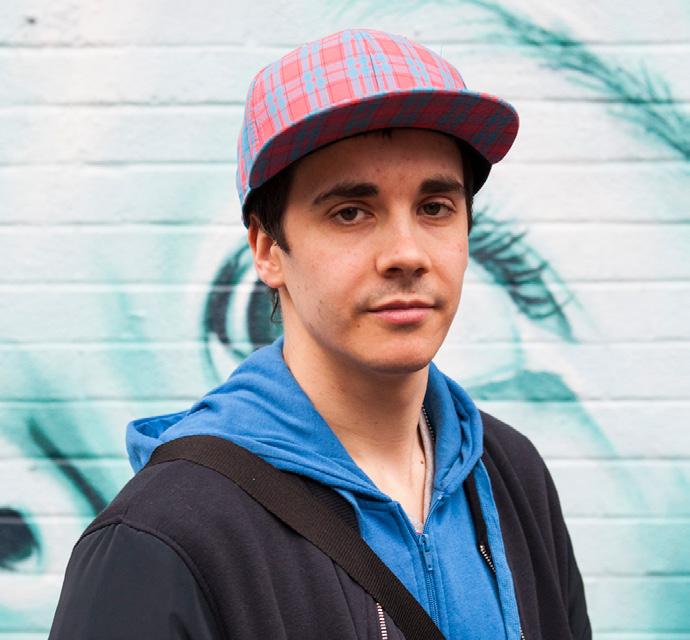
But this progress has not been shared evenly across the UK. In too many areas, services remain fragmented, funding is short term, and young people are slipping through the cracks. If we want to build on what works, we need to think beyond seasonal interventions and commit to long-term, year-round solutions.
What young people need are not heroes who drop in and disappear, but people and services that stay the course. What families need is support, not blame. What communities need is long-term investment, not short-term patches. And what the country needs is the courage to move from reacting to harm towards investing in hope.
Knife crime is not inevitable. It is preventable. But prevention takes time, trust, and consistency. It takes belief in young people’s potential, even when they cannot see it themselves. And it takes the kind of lived experience-led, whole-person support that St Giles has been delivering for decades.
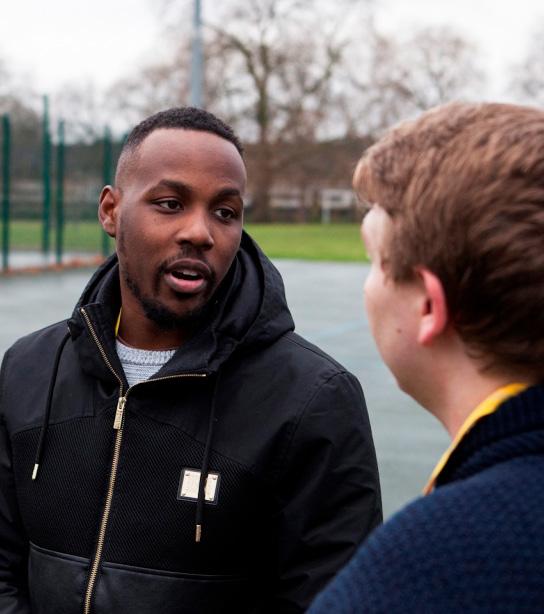
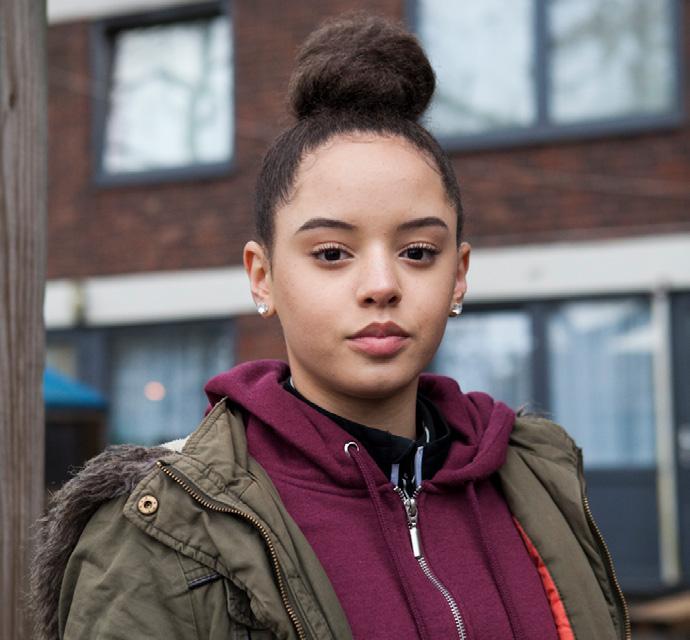

www.stgilestrust.org.uk
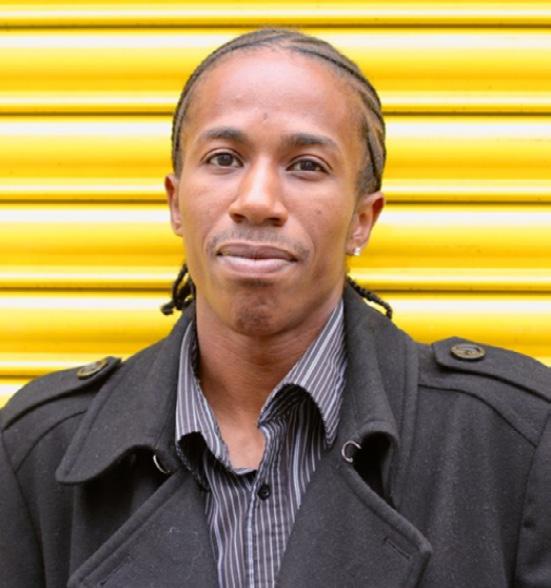
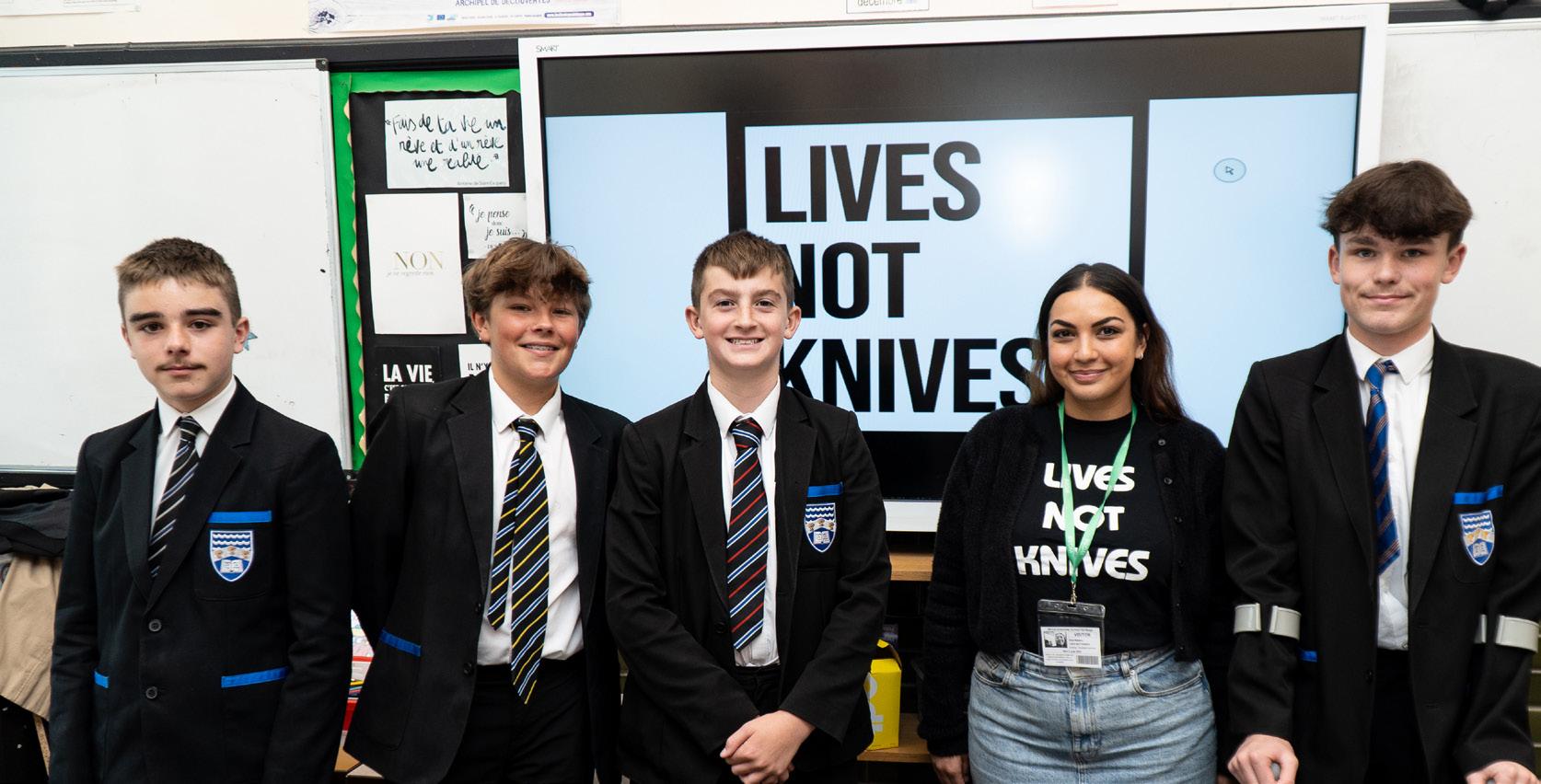
By Eliza Rebeiro, CEO, Lives Not Knives
I’ve been in too many rooms where youth violence is talked about like it’s just data. People bring out the graphs, shake their heads, and talk about the ‘problem’; but behind every number is a child – a story, a family, and a community. By the time those numbers are being counted, a life has already been changed forever. I know this because I’ve been on the other side of the statistics.
I grew up in Croydon, and as a child I wasn’t aware and did not see the violence that was happening around me. I didn’t think knife crime was something that could touch me or my friends – until it did. I was excluded from school, labelled as troublemaker, and suddenly the world felt very small. School had been my structure and when it was taken away, I didn’t just lose lessons – I lost my place, my safety net, and the sense that I mattered.
When attending a Pupil Referral Unit I was reminded daily of the statistics that surrounded exclusion, with teachers often saying things like “you’re more likely to go to prison, then get your GCSE’s”. At the time, I didn’t know how true this was, but I saw it as a motivator and now I am very aware that; statistically, 42% of adult prisoners were permanently excluded from school and 63% were temporarily excluded or suspended at some point, it’s also well known that, children who are excluded are more likely to be groomed, more likely to carry weapons and more likely to end up in violence.
It was also during my time at PRU where I first witnessed a knife being drawn and used. That experience changed everything, and it is the reason my Mum and I started Lives Not Knives. Initially launching as a T-shirt campaign in Croydon, it quickly grew from just me and my mum to a dedicated team
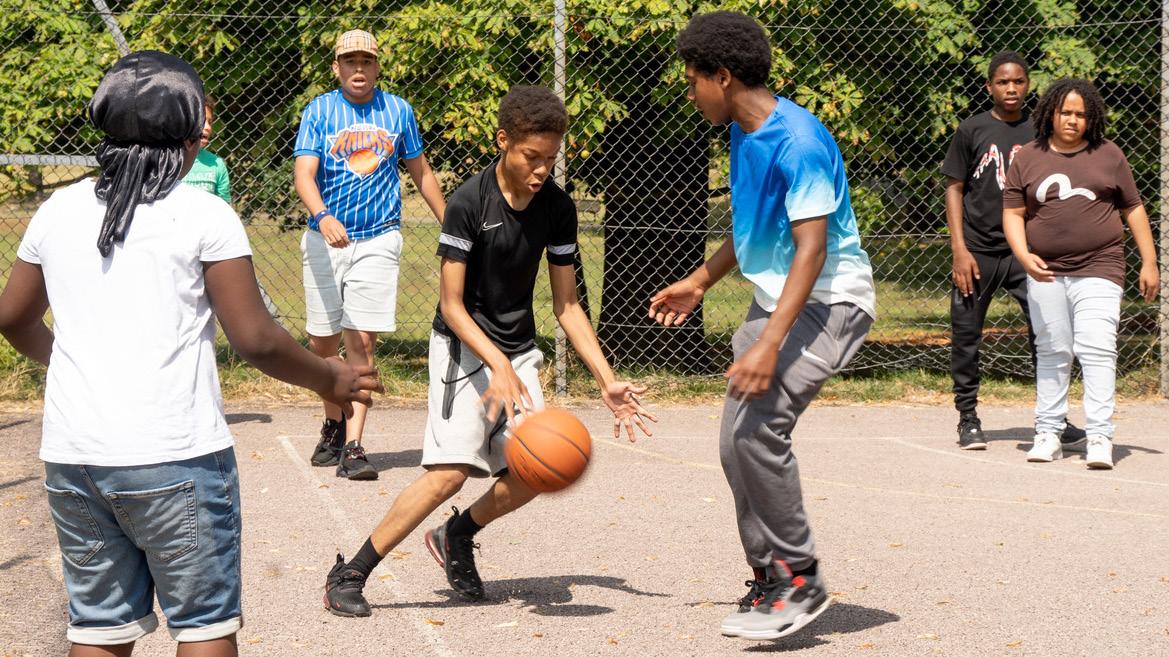
of youth workers who are focused on addressing the socio-economic factors that contribute to knife crime and youth violence.
Croydon has been in the headlines for all the wrong reasons. In 2021/22, it recorded the highest number of teenage murders in London. The year after, there were 681 recorded knife crime offences which increased to 834 in the following year. Again, these aren’t just numbers - they’re names, family members, and communities that will forever be impacted by knife crime and youth violence. However, this is only one part of what’s happening, with more children growing up in temporary accommodation and more families struggling with poverty. These issues only contribute to the ongoing challenges surrounding mental health, where an increased number of referrals for free care are pushing services to their breaking points, and leading to ongoing safeguarding concerns.
I also know that nearly all young people referred to us are on free school meals, have witnessed or been a victim
of domestic abuse, have undiagnosed and untreated mental health issues related to trauma, and come from single family homes or homes where their family member is incarcerated. A number of children that come from these backgrounds have been failed long before they picked up a weapon or got involved with ‘the wrong crowd’ and it cannot just be seen that they had made a bad choice without consideration on their socioeconomic environment that they grew up in.
And the most frustrating part? So much of the support they need only
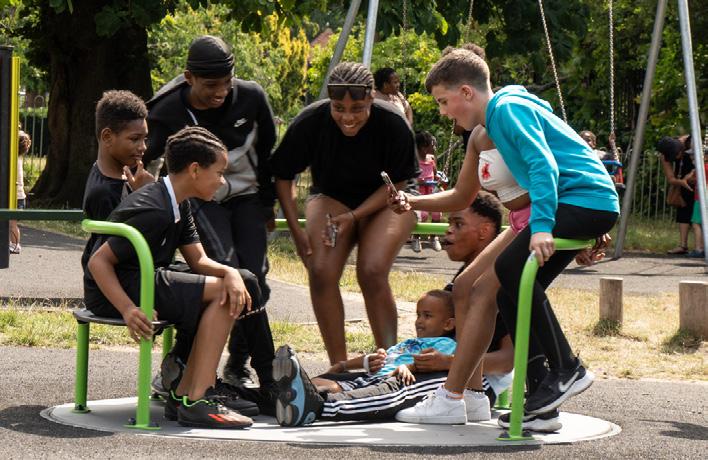
arrives after something goes wrong –after they’ve been excluded, after they’re arrested, after someone has already been hurt. That’s why Lives Not Knives exists and continues to evolve so that we can help to prevent youth violence - everything we do is about stepping in early and providing consistency in the lives of young people through our Engage, Educate and Engagement Programs.
Our Engage program runs during the school holidays when young people are often most vulnerable and when parents are working, Engage gives them a place to go by giving them access to our unit so they can socialise and participate in different activities and games, we provide hot meals to ensure they’re fed, as well as creating an environment that is safe and gives them a simple chance to just be a child.
Educate is our program focused on school. We work with teachers and students to bring real conversations about knife crime into the classroom. This isn’t a one-off assembly that kids forget about in a week. It’s lived experience, victim and perpetrator
stories with honest conversations about consequences. We’ve trained over 400 teachers and reached more than 8,000 young people – and just as importantly, we’ve helped schools spot who’s at risk before exclusion happens, so those students can get the mentoring they need.
And then there’s Empower , which is all about families. We know children don’t live in a vacuum. If a parent is struggling just to keep the lights on, it’s hard for them to be emotionally available. By providing essentials, food, and emotional support, we ease that pressure and help families create a safer, more stable home for their children.
Even with all of this, we still see too many schools and councils calling us in only after tragedy has struck. If we’re serious about saving lives, prevention can’t be an optional extra – it has to be part of the system. That’s why we’re launching The Educate Hub , which takes everything we’ve learned and makes it available to every school. It’s full of lesson plans, interviews, legal
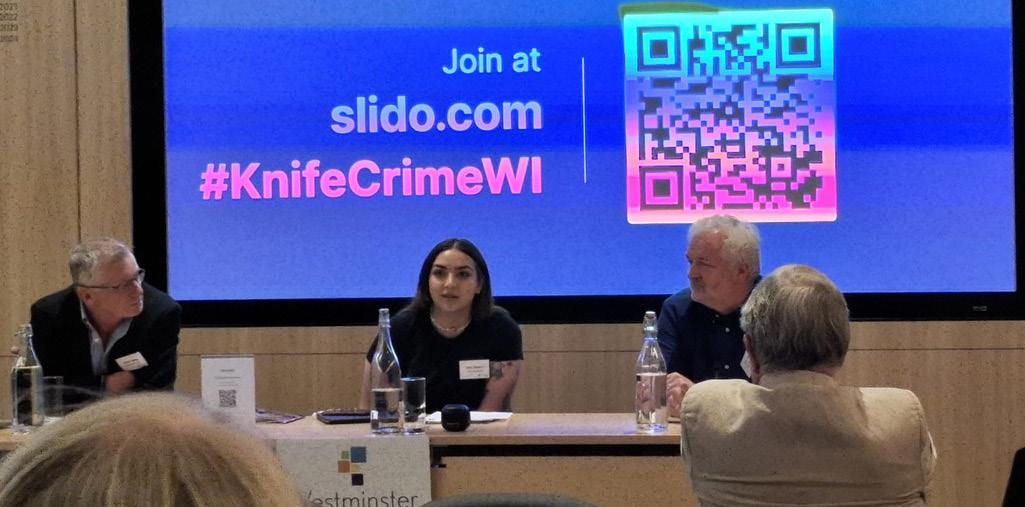
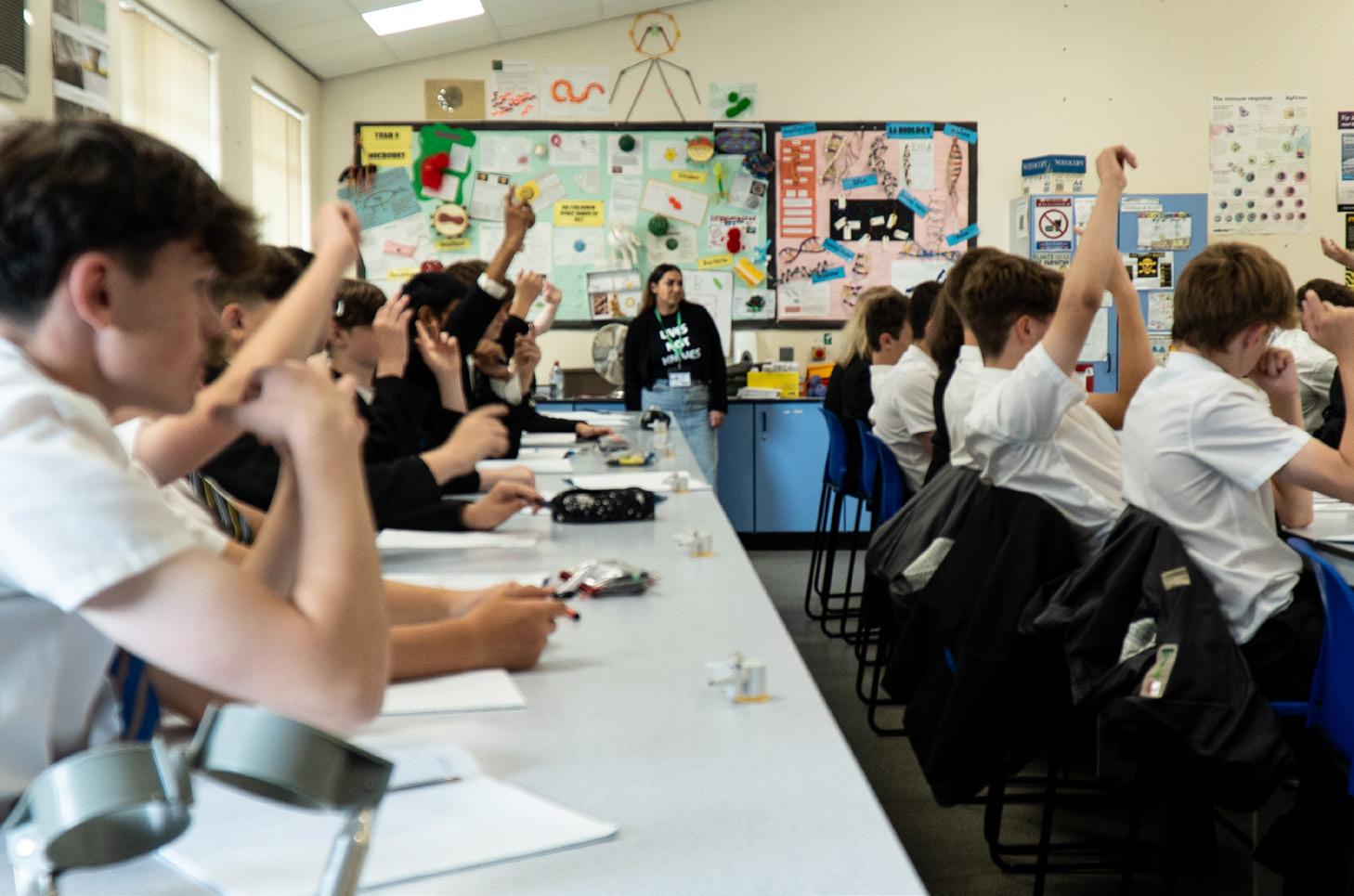
and medical advice, and guidance for teachers who want to support their students but don’t know where to start. The goal is simple, a ‘whole school approach’ to tackling violence, make prevention consistent and accessible, so no school is left waiting until after an incident to act.
I often think back to my own experience and ask: did I matter then? At the time, it didn’t feel like I did. I felt written off. What changed my life
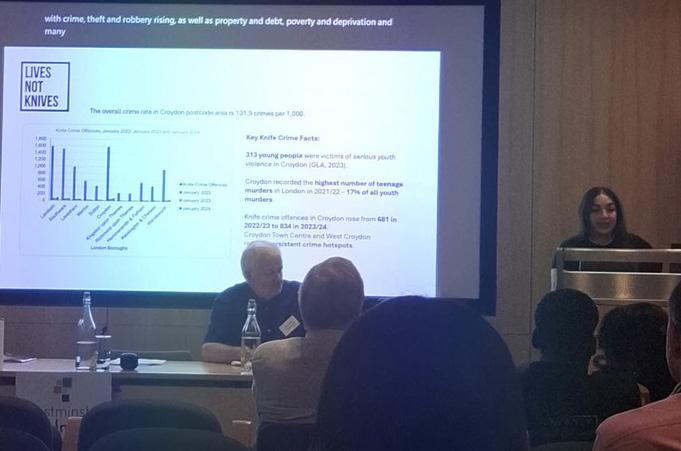
was the people who chose to see me differently – who believed I was worth more than the worst moment of my teenage years. That question – does this child feel like they matter? – is the one I carry with me into every school, every meeting, every speech. Because when a young person feels like they don’t matter, when they feel disposable, it becomes much harder for them to choose safety.
So here’s what I believe we need to do. Make prevention mandatory in every school. Make education about knife crime consistent, not a one-off reaction. Treat exclusion as a sign a child needs help, not a way to get them out of sight. Knife crime isn’t just about gangs or knives. It’s about poverty, trauma, inequality, and children who don’t feel like they have a future.
Lives Not Knives will keep doing this work. The Educate Hub will help us reach even more schools. But we can’t do this alone. Schools, policymakers, communities – we all have a role to play. Because if prevention isn’t built into the system, then we will keep failing children who deserve safety, stability and opportunity.
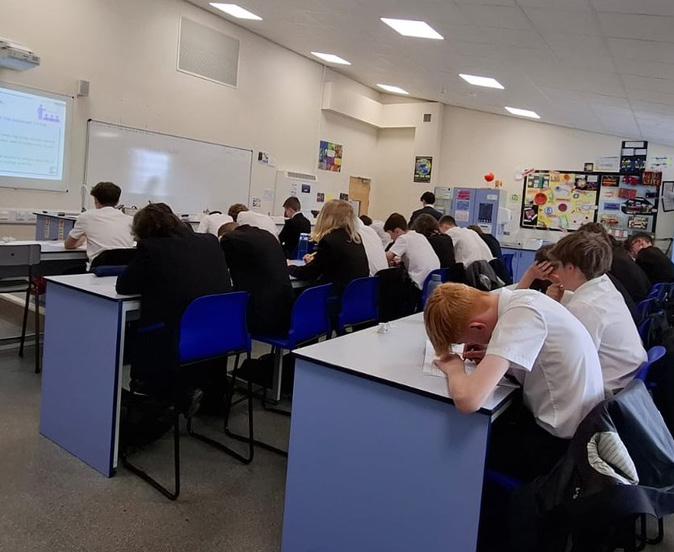
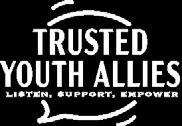
Rebeiro CEO, Lives Not Knives
www.livesnotknives.org

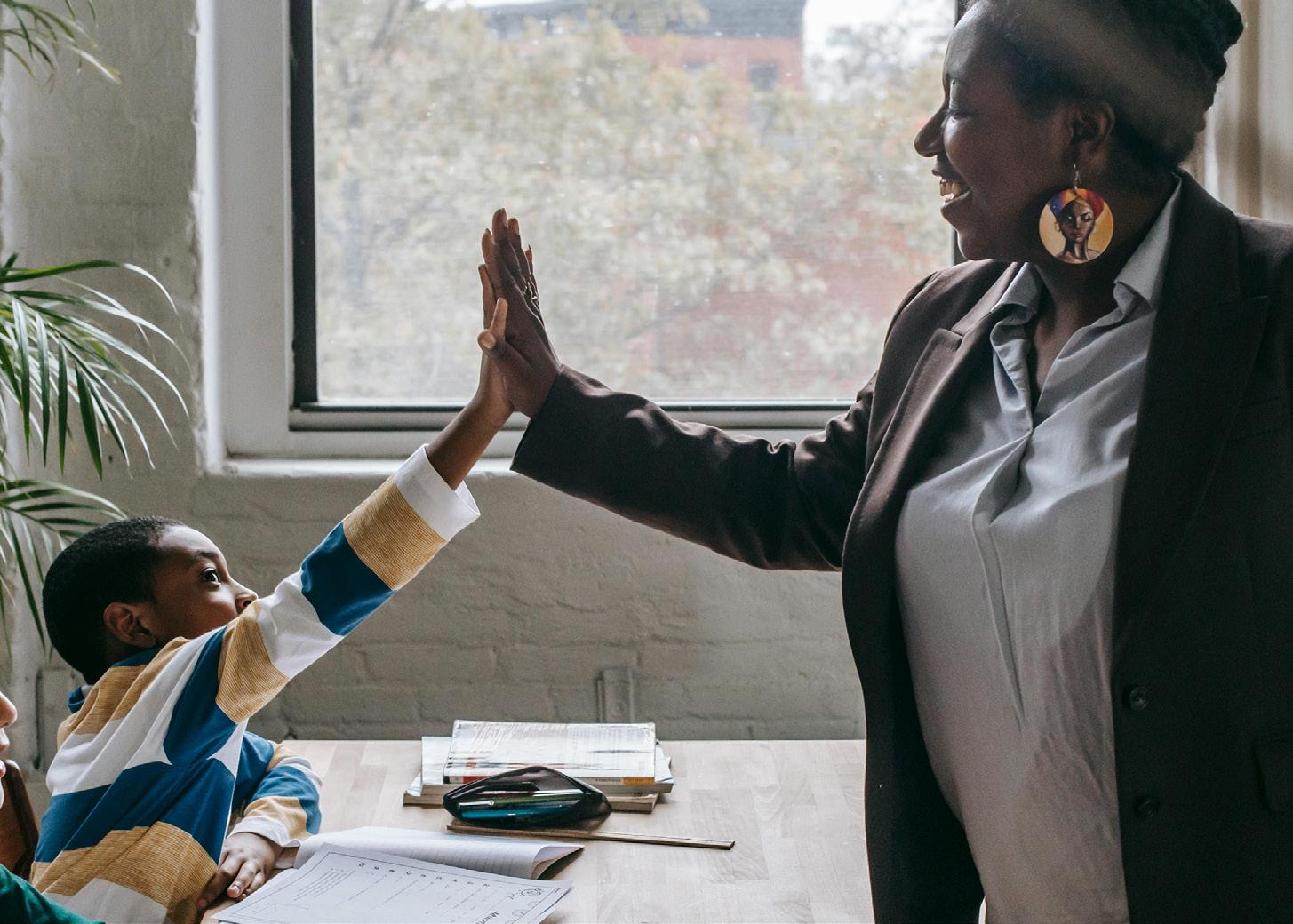

By Martin K. Sullivan, founder, MK Mind Rewind Project
A challenging and traumatic upbringing had a detrimental effect on Martin Sullivan’s mental health, leading him on a road to serious criminal violence and spending many years moving from one prison to another. Now a mental health therapist with LSCft, Martin explains how he’s traded a life behind bars for one where he is able to inspire and help others every day, with a goal of one day becoming a published author too!
Martin, 45, was unfortunately separated from his family and put into the care system as a little boy. He found himself in an environment that was completely alien to him, where his peers were taking drugs, self-harming and getting into trouble with the law. And it wasn’t long before he started to learn some of these behaviours too, the reason for which, he puts down to care seeking (or attention seeking, as some may call it). Martin’s mental health worsened over time and so too did his behaviour.
Martin said:
“For some strange reason, each environment I went to, within months, I’d be the worst person in there. Children’s homes and boarding schools got sick of me and that’s when my prison journey began.”
He didn’t know it at the time, but Martin was suffering from druginduced schizophrenia. He was hearing voices, experiencing paranoia and lost a lot of weight because intrusive thoughts were ruining his appetite.
Martin added:
“I was severely unwell, constantly paranoid and was carrying weapons, whether they be knives or firearms, to protect myself because I thought people were coming to kill me.”
What followed was an arrest and jail time in Walton Prison. This was Martin’s first prison admission, but sadly wasn’t his last. In total, he spent time in over 35 prisons or secure hospitals, including Ashworth, a maximum high security facility. He was moved to Ashworth following a
violent attack on a fellow inmate and a prison officer, which resulted in him being given a life sentence and hospital order.
It was when Martin was prescribed an anti-psychotic drug called Clozapine that his life started to turn around. Within two months, the voices in his head had subsided and his paranoia had stopped. This improvement meant that in time, Martin was able to move to Guild Lodge, our medium security forensic service. With the support of a psychologist, he was able to continue on a positive journey to recovery.
Martin said:
“While I was at Guild Lodge, I was the model patient, literally. I didn’t fail any drugs tests, was going to college and I ended up getting a job, completing two diplomas and won Student of the Year at Preston College.”
Since being back in the community, Martin’s been working with the police, prisons, schools and has even delivered talks at Broadmoor, Rampton and Ashworth.


Martin joked:
“It’s very strange going to Ashworth and getting out the same day!”
He speaks at conferences on a range of things, including: knife crime, self-harm, medication, high secure prisons, high secure hospitals, county lines and grooming. He’s a reform advocate and received the Positive Future Award from the House of Lords.
You’d think that would keep him busy enough, but he also works at Guild Lodge full time in three different positions. He is a social activity coordinator, B.A.M.E ambassador, and works for the Forensic Mental Health Team. Sharing his story and his experience has made a real difference, and he’s had feedback that his words have helped people to stop self-harming. Outside of work, Martin is proud to have a partner and a little girl, something he never thought was possible.
Martin concluded:
“It’s not only created a life but it’s also saved my life. I’ve got a daughter, I’ve got a beautiful girlfriend, my own home, a little scooter I drive, you [the NHS] have given me a career, a valued, paying job.”
Martin’s list of life goals continues and he’s hoping to publish a fictional children’s book about knife crime soon. Watch this space!
For talks or support with projects, you can email: Martin.Sullivan@lscft.nhs.uk
Martin K. Sullivan founder, MK Mind Rewind Project

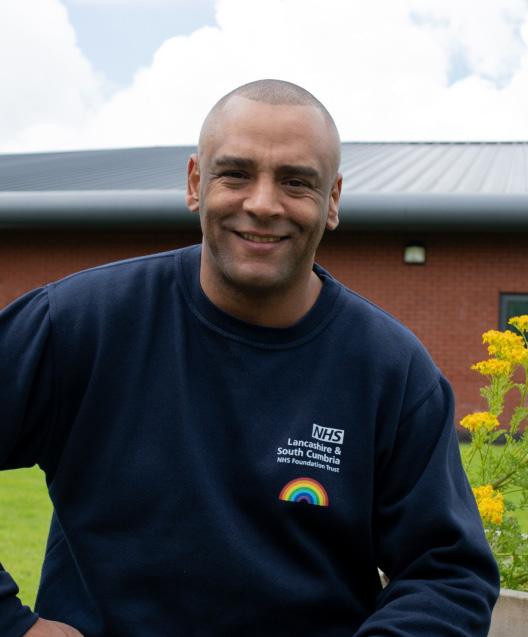
MK Mind Rewind is a foundation dedicated to helping and supporting a variety of people and companies and do so through their engaging talks and presentations that help train, educate, and inspire. These dynamic talks, presented by the award winning Martin K. Sullivan, cover a range serious topics such as experiences with drug use, violence, abuse, prisons, mental health, and so much more. These talks are designed to spread awareness and motivate others who may be suffering to take action and seek advice.
As well as providing these incredible talks, MK Mind Rewind also stands as a foundation that will always be there to help you in anyway they can by providing valuable advice that help people challenge whatever they may be going through.

